
|
|
#1
|
||||
|
||||
|
معماری Water Villas: 3 Modern House Boats in Urban Settings 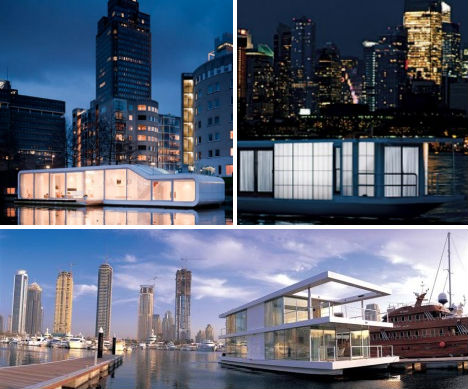 When the bustle of urban life becomes too much to bear, wouldn’t it be nice to retreat to your own private floating getaway – without even needing to travel? Modern house boats have all the amenities that come with living on land, and docked in an urban marina or canal, they’re just steps away from the excitement of the city. As urban centers become more populated and land more scarce, house boats could be an attractive option, especially when they’re as beautifully designed as these three. Watervilla de Omval by +31 Architects 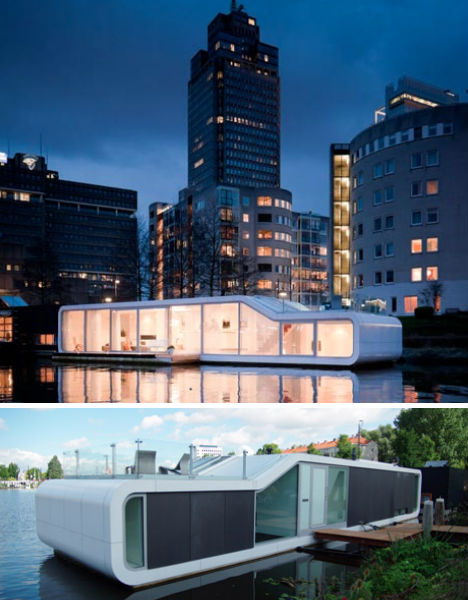 As fluid as the water it sits on and filled with light thanks to a wall of windows, the Watervilla de Omval is a stunning addition to the river Amstel in Amsterdam. Designed by +31 Architects, the Watervilla features a kitchen and living space at the top level with a view of the river, and cabins below the water line. 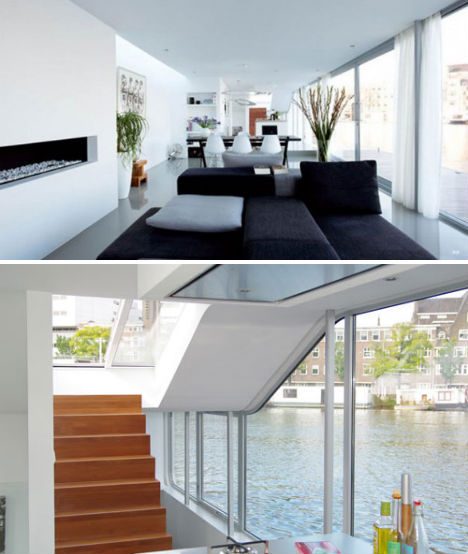 The roof slopes down in a split-level area which holds the stairway and the bathroom, creating a flat terrace for outdoor living in fair weather. Inside, an open floor plan featuring white plaster contrasting with touches of warm wood provides an open, airy feel. Dubai House Boat by X-Architects  Built on two catamaran beams, this steel-and-glass house boat floats in the Dubai marina against one of the world’s most dramatic skylines. X-Architects and interior decorator-architect Leen Vandaele gave the two-story home a clean and simple shape and a nearly all-white color palette for a thoroughly modern result. 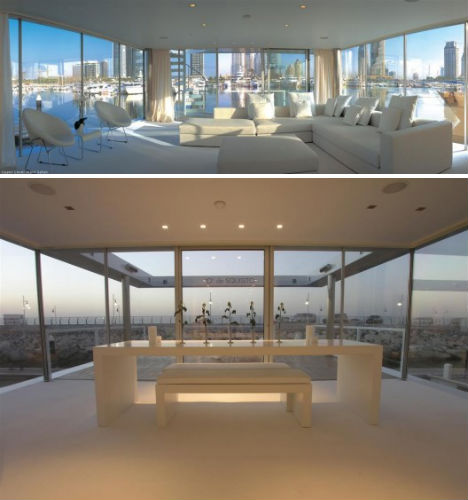 The upper deck contains a concealed kitchen, a living room and an informal dining area while the lower deck houses the bedrooms, bathroom and steering cabin. The home also features a spiral staircase and a terrace. MetroShip: “The Original Modern House Boat” 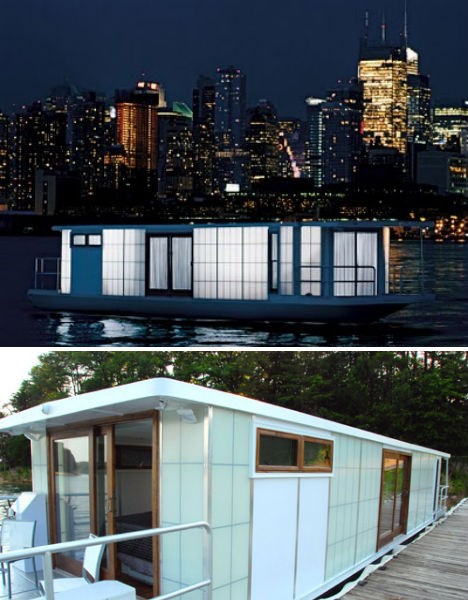 If you’ve got a quarter of a million dollars to spare, you can have a MetroShip of your very own – a modern luxury houseboat hand-made in the USA by Ballinger & Co. Measuring 12 feet wide and 48 feet long, the MetroShip was inspired by the open plan of New York City loft spaces. 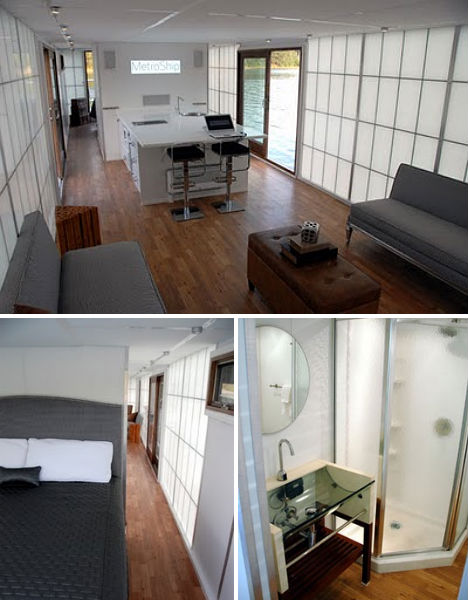 At night, the MetroShip lights up like a lantern, with translucent walls reminiscent of Japanese shoji screens. It’s filled with top-of-the-line appliances and furnishings including a Viking and Gaggenau kitchen, an Italian marble bathroom with Kohler shower, Sony LCD HD televisions and a W Hotel bed. Twin 60-horsepower Honda outboard engines make it easy to steer it into your harbor of choice. Want More? Click for Great Related Content on WebUrbanist: 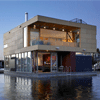 With as many comforts as a modern home, house boat design has become something beautiful and breathtaking. It makes one wish their house could float. 3 Comments - Click Here to Read More »» 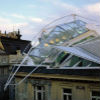 Adding living space, offices and restaurants to rooftops around the world, these 11 additions are unapologetically modern, taking loft living to new heights. 3 Comments - Click Here to Read More »»  Unbelievable as it may sound, there are those who track urban wonders of all kinds - from the narrowest to the most windy streets of the world and more. 14 Comments - Click Here to Read More »» مطالب مرتبط با معماری |
| جای تبلیغات شما اینجا خالیست با ما تماس بگیرید | |
|
|
|
|
#2
|
||||
|
||||
|
معماری The Coolest 9 to 5′s: 8 Offices that Blow Your Mind 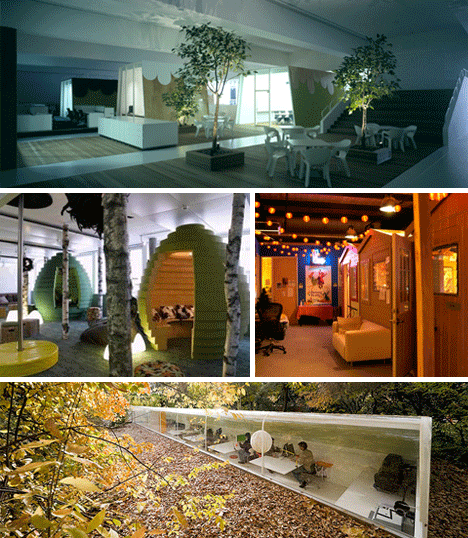 Most people live in cookie cutter townhouses, or bland apartments, and go to work in utilitarian buildings full of cubicles. Most people, but not all. Some of the coolest companies have expanded their boundaries beyond the typical soul-sucking office setup and created truly wonderful places to work. 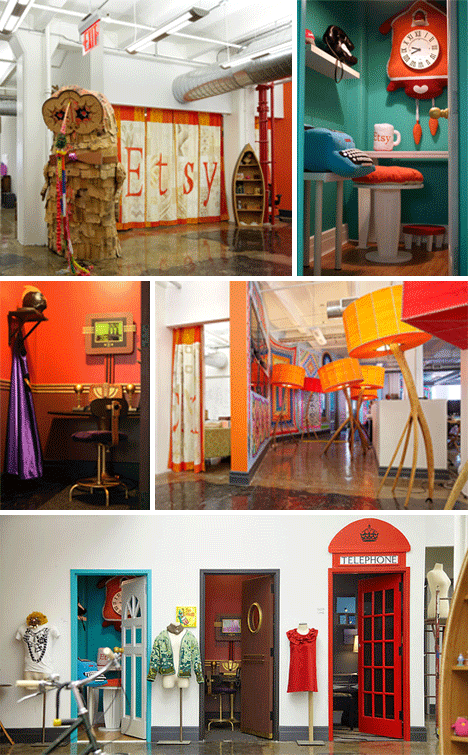 (Images via fastcodesign, doobybrain, whitezine, stygianstudios, superpunch) Etsy’s headquarters are as fun and offbeat as one would expect from such a homespun company. With plush cubicles themed on different designs, and wacky homemade paraphernalia everywhere, this office space seems oddly put together considering the variety of decoration. 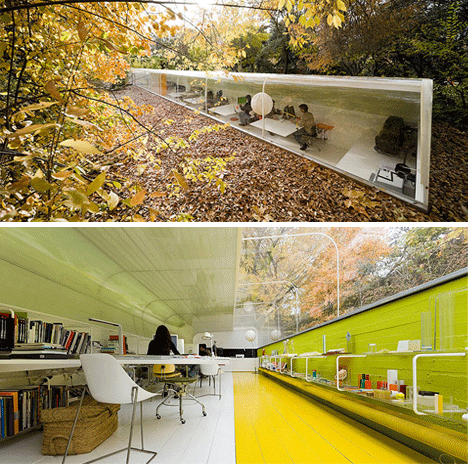 (Images via coolboom, todayandtomorrow) The Selgas Cano architecture office in Madrid is truly out there. The office is literally engulfed by nature, sitting slightly below ground with a wall of glass as the only separation from the beautiful foliage. It is much easier to make it as an architect when your office is this astounding. 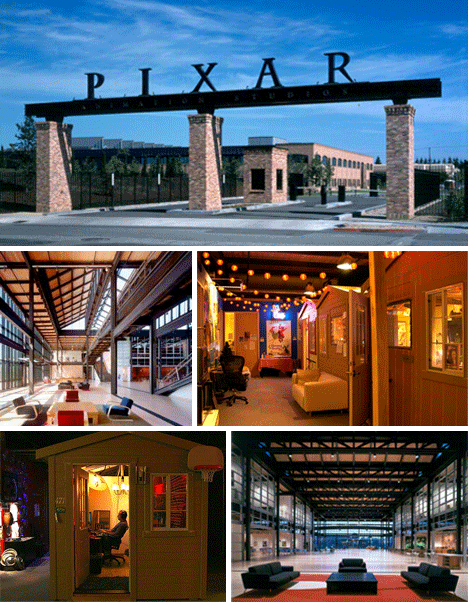 (Images via dpr, cubiclebot, dpr, thelmagazine, siteselection) Pixar’s headquarters personify the fun and childlike wonder of their films. With giant halls that look more like aircraft hangars, down to offices that look like a ramshackle neighborhood, each room has its own outrageous atmosphere. This is definitely a place where creativity is prized.  (Images via positivesharing, vwinthenews) The facilities above look like a fancy new show floor for Volkswagen’s Phaeton, their luxury vehicle. In fact, this swanky building is actually the Phaeton plant. Located in Dresden, Germany, this factory has to be the fanciest in the world. With top of the line equipment and an aesthetic that’s far from the dirt and industrial feel of most car plants, this is a factory that clearly matches the feel of its cars. 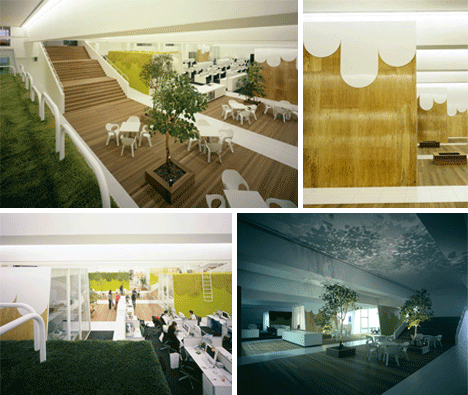 (Images via designyourway, designelegant, archdaily) The TBWA Hakuhodo ad agency’s office feels like a walk in a park. With rolling green hills and lawn chairs as desks, this is definitely a building to put a client at ease. The building tells clients they think differently, and it would be difficult not to agree. 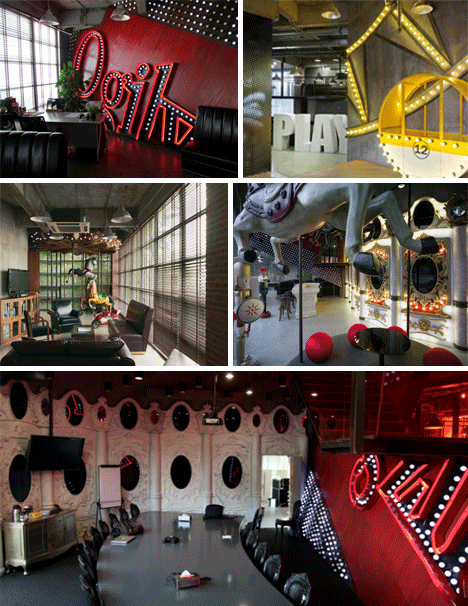 (Images via bcreative, soussaline, uniquedesignbymerihcakici, last2pics, yatzer) The Ogilvy and Mather ad agency brings their idea of a “carnival of ideas” to a new level with their jaw-dropping office in Guangzhou. Featuring the carnival staples of lit signs and carousel animals, the office’s design is a delightful way to catch a potential clients attention. 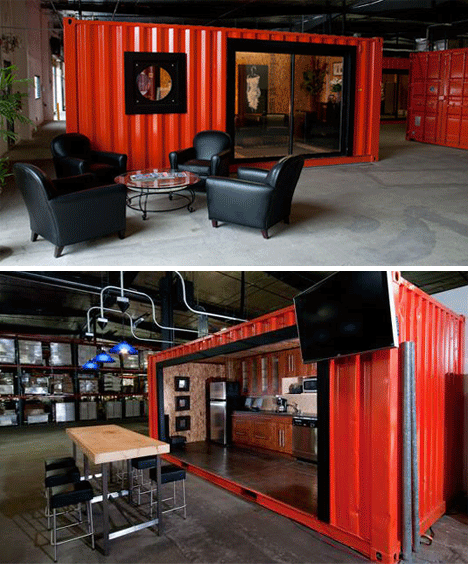 (Images via inhabitat) MPV decided to add an office component to their warehouse, and came up with a novel and sustainable solution in the process. They used modern techniques to turn discarded cargo containers into something modern and remarkable.  (Images via hemmy, businesspundit, swiss-miss, myinterestingfiles, inspiredesignblog, myinterestingfiles) Google is known for the extravagances in their offices, from technological toilets to free massages, it can seem like it would be impossible to get any work done over there. They spared no expense in their Zurich office, with slides and workspaces that are more like pods than desks. Want More? Click for Great Related Content on WebUrbanist: 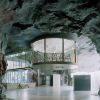 Inspired office buildings may be few and far between, but these 12 unusual buildings take office architecture to new heights with treehouse offices and more. 1 Comment - Click Here to Read More »»  Sheer graphics and technology aren't everything. Here's a look at 10 of the most interesting and innovative games that have graced our living rooms. 2 Comments - Click Here to Read More »»  I've never said anything to a hair stylist beyond "Make it shorter," so I have a true admiration for people who get truly creative with their hair. 7 Comments - Click Here to Read More »» مطالب مرتبط با معماری |
|
#3
|
||||
|
||||
|
معماری Singularly Singapore: 13 Hip, Chic & Relaxing Hotels Springing from a lush British trading colony to the bustling independent city-state it is today, Singapore is like a microcosm of Asia, where you can experience a variety of cultural influences that have melded into a distinct whole. These 13 hotels illustrate Singapore’s cultural richness, from hip modern urban hotels and renovated historic gems to traditional getaways and retreats in the rainforest. Marina Bay Sands (images via: marinabaysands.com) Though it opened just last year, Marina Bay Sands has already become a Singapore icon with one of the most distinctive silhouettes in architecture. The $4 billion resort has an infinity pool located 55 stories above Marina Bay, three times the length of an Olympic swimming pool, which is nestled in the boat-shaped ‘Sky Park’ that spans the three towers of the hotel. Capella Hotel 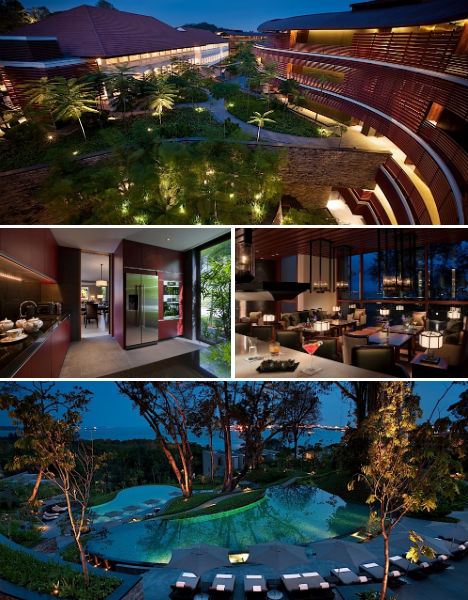 (images via: capellahotels.com) Nestled on a 30-acre property within lush rainforests on Sentosa Island, the luxurious (and pet-friendly!) five-star Capella Hotel has three outdoor swimming pools and is located steps from Tanjong Beach. Close to the heart of Singapore and to the Thian Hock Keng Temple, Capella is a stunning way to experience the wild, natural side of Singapore rather than the orderly urban side. The hotel, designed by Foster + Partners, adds curving modern buildings to historic colonial structures including two bungalows dating back to the 1880s. New Majestic Hotel  (images via: newmajestichotel.com) Bold and beautiful in Chinatown, the New Majestic is practically a gallery of local art with 30 rooms – including 9 suites – individually decorated by some of Singapore’s most notable artists and creatives. For example, the ‘Wayang’ room, designed by theater director Glen Goel, features walls upholstered in burgundy silk inspired by the film Raise the Red Lantern. Another room, ‘Fluid’, takes a more modern tack, with fashion designer Wykidd Song embracing white minimalism. Quincy Hotel (images via: quincy.com) Designed by Ong & Ong, the Quincy Hotel is an all-inclusive business and leisure boutique hotel with 108 slightly different rooms. Long and narrow to fit inside an unusually shaped parcel of land, the Quincy has a distinctive anodized steel facade punctuated with modular windows, a design motif that continues inside with creative lighting. A glass-enclosed pool cantilevered from the 12th floor, featuring a pool deck illuminated with color-changing LED lights, provides a cool and unusual way to experience the Singapore skyline. Gallery Hotel  (images via: galleryhotel.com) The Gallery Hotel terms itself ‘art-centric’, hence the name. A four-star boutique hotel situated right in the city center, the Gallery has a striking pluralistic facade including randomly placed, color-ringed windows, giving it a Pop Art effect. Inside, it’s just as bright and artistic, with lots of colored lighting and large murals. One interesting feature of the Gallery is a number of all-women guest floors, where men are not allowed – not even staff. The Club Hotel 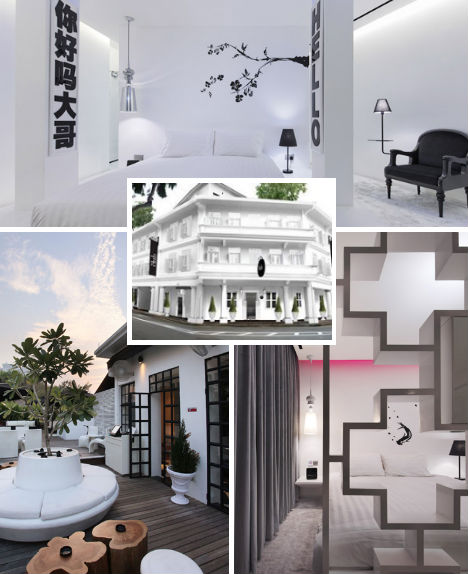 (images via: theclub.com) Step through the threshold of this clean white colonial building in Singapore’s Club Street conservation area into a bold and graphic boutique hotel that’s easy on the eyes in a palette of black and white. Folds of white fabric buffer the lights in the common areas, and black graphics liven up vast expanses of white walls. The Club Hotel has 22 distinctly unique guest rooms, a rooftop skybar with an alfresco deck and a tapas bar on the ground floor. Merlion Pop-Up Hotel for Biennale 2011 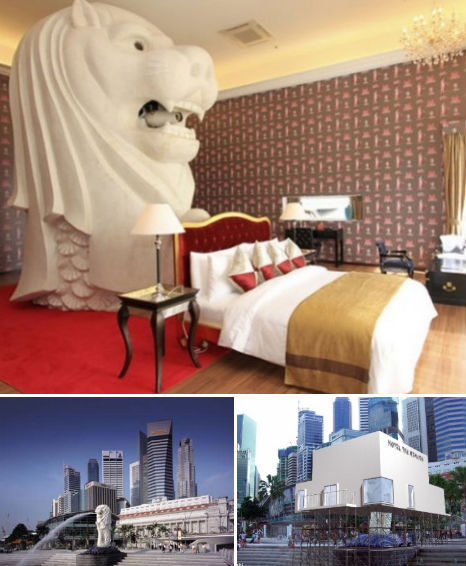 (images via: luxuo) Singapore’s iconic ‘Merlion’ – a massive public statue with the head of a lion and the body of a fish – has been transformed into a temporary pop-up hotel for Singapore’s Biennale 2011, the largest contemporary arts gathering in Southeast Asia. Japanese artist Tatzu Nishi encased the statue in a small hotel that will be available for overnight stays until May 15th and will be disassembled by June 6th. Hotel Re 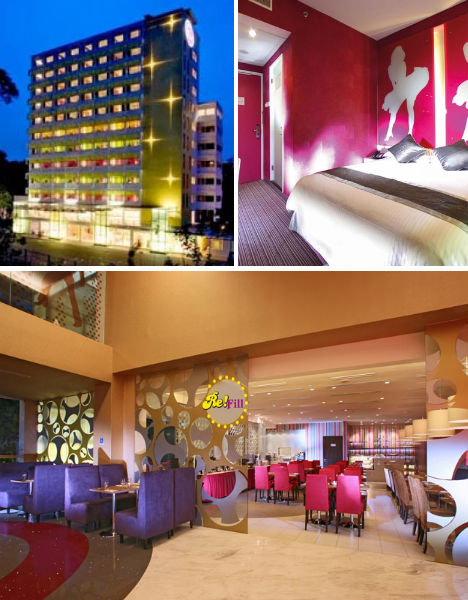 (images via: hotelre.com) Each floor of the retro-themed Hotel Re has its own bold assigned color, and guest rooms reflect the iconic pop culture of the 1960s and ’70s, including silhouetted wall murals of Marilyn Monroe and John Travolta. There’s definitely a disco vibe going on with all of the reflective surfaces, funky fonts and hot-pink lighting. Hotel Re has 140 rooms and 12 stories, located at the base of Pearl’s Hill along Chin Swee Road. Wanderlust Hotel 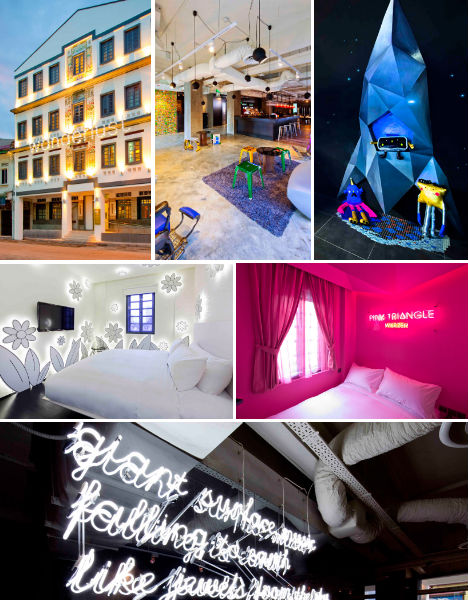 (images via: design boom) Celebrated as one of the world’s most interesting art hotels, the Wanderlust is located in a historic school building from the 1920′s and maintains the original facade – but step inside and it’s like you’re transported to another world. Each of the four-story boutique hotel’s 29 rooms is uniquely decorated including a floor of bright rooms with neon lights on the walls spelling out song titles with colors in them, like Weezer’s ‘Pink Triangle’ and The Beatles’ ‘Yellow Submarine’. Other levels feel like childhood fantasy with treehouse-themed rooms and even space-themed rooms with starry ceilings. Scarlet Hotel 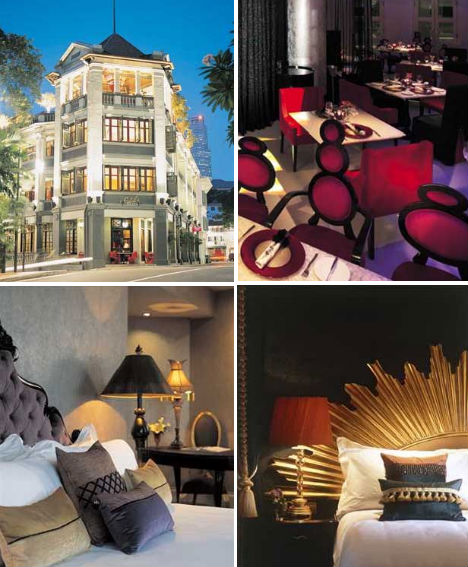 (images via: thescarlet.com) The 121-room Scarlet Hotel, housed in a pre-war shophouse in Chinatown, was named by Luxury Travel Magazine as one of the world’s best 5-star city hotels. Decked out in rich reds, gold and platinum, the hotel speaks of luxury and splendor in a way that is sometimes perhaps a little over-the-top ($30,000 beds?) The décor calls to mind Singapore’s colonial past but is injected with plenty of modern details to keep it fresh. Naumi Hotel 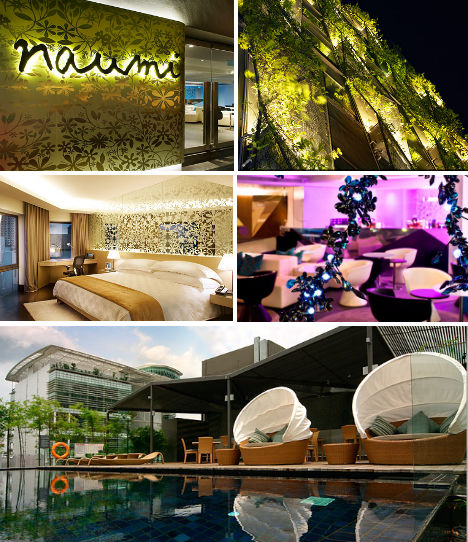 (images via: naumihotel.com) With soothing modern aesthetics and some of the most spacious hotel rooms in the city, the Naumi Hotel is a place of relaxation and retreat. This 40-room boutique hotel in Singapore’s Central Business District has a rooftop pool, restaurant, yoga/fitness studio and an entire floor of women-only suites. Its origami-inspired facade, which incorporates vertical greenery, definitely stands out among the colonial shophouses of Seah Street. Klapsons Boutique Hotel 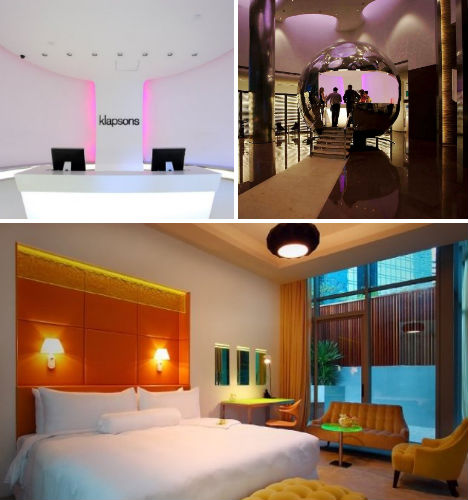 (images via: klapsons.com) This design-oriented hotel in the business district has just 17 rooms with a subtly futuristic flavor including lots of plexiglass and bright colors. In the lobby, a giant reflective dome holds the reception desk, and the guest rooms, though all different, each have an open bathroom with a cylindrical glass shower. Klapsons includes an alfresco bar and lounge as well as a first-floor restaurant serving Western cuisine. The Raffles Hotel  (images via: raffles.com) If you want traditional Singaporean luxury, there’s no better destination than The Raffles, one of the world’s most famous hotels with an extensive history dating back to 1887. Occupied by the Japanese during WWII and used as a transit camp for prisoners of war, the hotel was declared a national monument in 1987 and given an extensive makeover that restored it to its former glory. The Raffles is an all-suite hotel with restaurants and lounges, a luxury shopping arcade, a full-service spa, a 66-foot rooftop lap pool and a 388-seat Victorian theater. Want More? Click for Great Related Content on WebUrbanist: Fresh, creative and sometimes strange, these 12 hotels in France - including a hamster-themed getaway with a working man-sized wheel - are fun and unexpected. 1 Comment - Click Here to Read More »» Whether you're looking to rent a bizarrely themed room by the hour or enjoy a relaxing stay at a traditional ryokan, Japan's got an eye-popping hotel for you. 2 Comments - Click Here to Read More »» From the Italian alps all the way down to Sicily, these 15 hotels and resorts offer stylish, modern, fashion-forward lodging options in all price ranges. 3 Comments - Click Here to Read More »» مطالب مرتبط با معماری
ویرایش توسط رزیتا : 04-16-2012 در ساعت 02:15 AM |
|
#4
|
||||
|
||||
|
معماری Upwardly Immobile: 15 Sky High Statues From 15 Countries 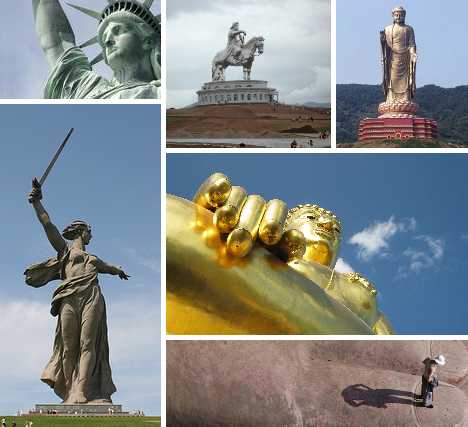 Statue of limitations, you say? Not applicable in these 15 countries, at least. This monumental selection of sky-high statues showcases the tallest figural sculptures in their respective countries – all built, it would seem, with a higher purpose in mind. Spring Temple Buddha, China 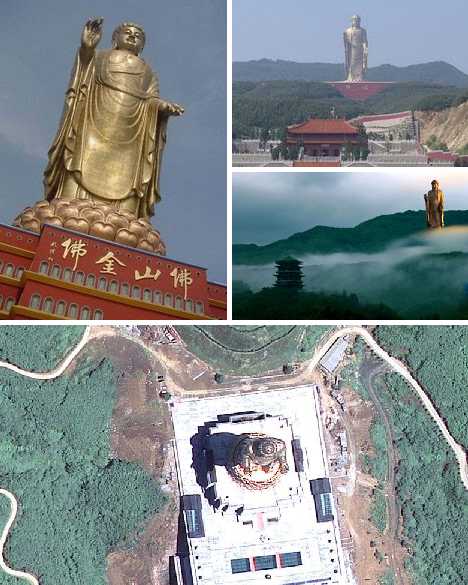 Completed in 2002, the Spring Temple Buddha is both China’s and the world’s tallest statue at 128 m (420 ft). That figure is for the Buddha and its Lotus Throne: if you include the 25 m (82 ft) tall pedestal building the statue stands upon, the total height increases to an awe-inspiring 153 m or 502 feet! The statue and its associated facilities are located within the Fodushan Scenic Area in Lushan County, Henan province. 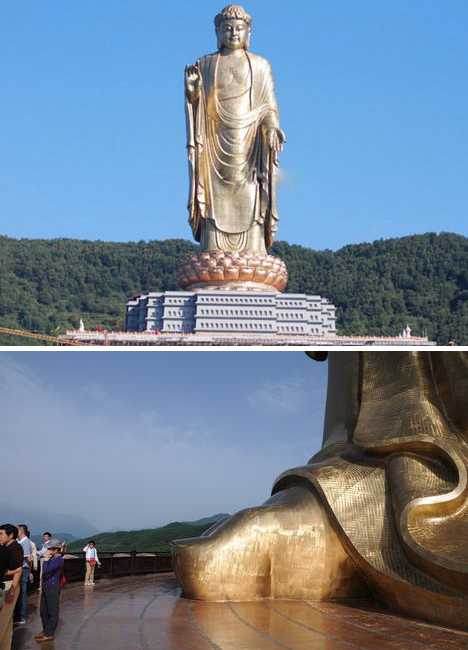 The statue is a representation of the Vairocana Buddha, who in Chinese Buddhism is said to embody “shunyata”, the Buddhist concept of emptiness. Vairocana statues are often very large in size so that when in their presence, one can truly feel the lack of permanent identity and the accompanying emptiness of conditioned existence. Sure makes ME feel small! Laykyun Setkyar, Myanmar 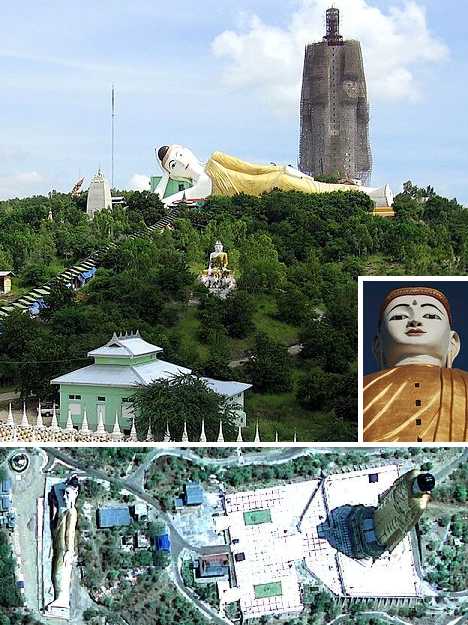 Laykyun Setkyar, located near Monywa, Myanmar, stands 116 m (381 ft) and stands on a 13.5 m (44.3 ft) tall throne. The main image above dates from 2006 when the massive monument was in its 10th year of construction – it formally opened in February of 2008. 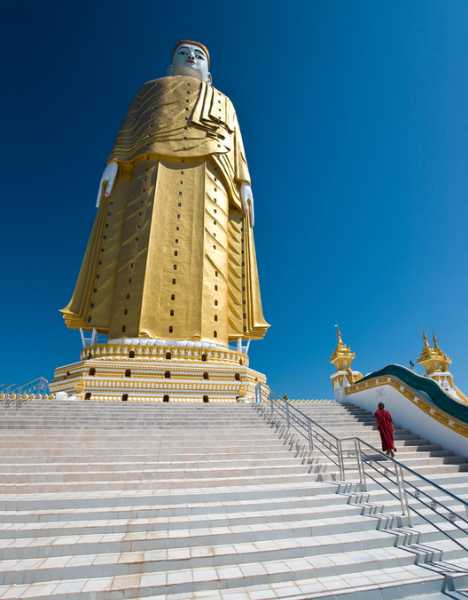 The Laykyun Setkyar complex features two enormous Buddhas: one standing and one reclining. Tourism to Monywa sparked by the unveiling of the Laykyun Setkyar statues has increased greatly, providing both income to local businesses and a window to the outside world for Burmese citizens of this culture-rich, ancient city. Ushiku Daibutsu, Japan 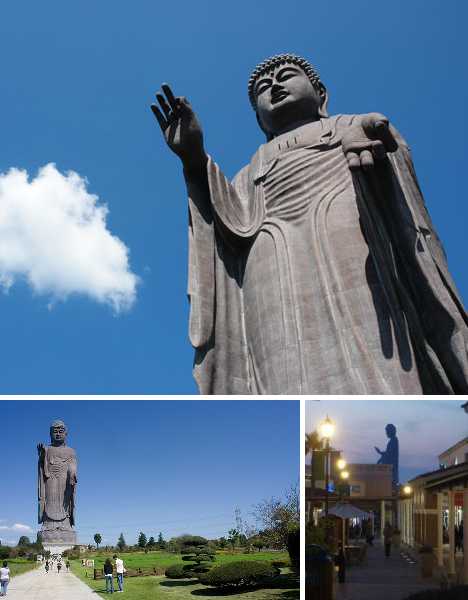 The Ushiku Daibutsu, completed in 1993, stands 120 m (394 ft) tall including its 10 m (33 ft) high base and 10 m high lotus platform. The statue weighs just over 4,000 tons and is plated in bronze. Just to give one an idea of this statue’s immense size, consider these dimensions: its eyes are 2.55 m (8.35 ft) wide, its mouth is 4.5 m (14.76 ft) wide and its first finger stretches a full 7 m (23 ft) from base to tip. 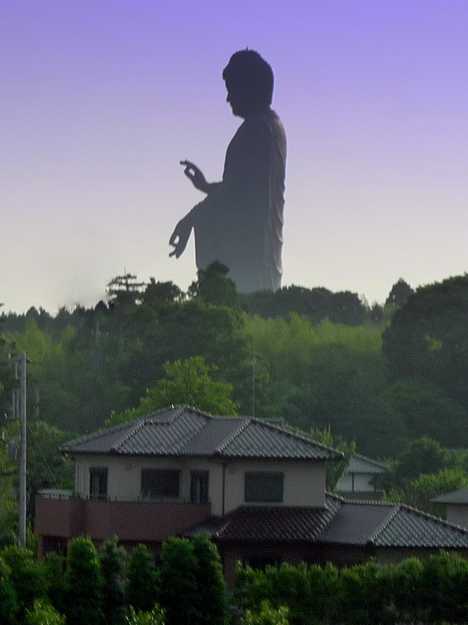 The Ushiku Daibutsu is located in Japan’s Ibaraki prefecture north of Tokyo and represents the Amitabha Buddha. Visitors can tour a 4-story museum built into the statue. Windows on the top floor look out through the statue’s chest, providing a birds-eye view of a flower garden and small animal park on the grounds below. Peter the Great Statue, Russia  This monumental statue of Russian Czar Peter the Great towers 94 m (308 ft) into the Moscow sky… though the fact hardly pleases many Muscovites. The statue, created by Georgian architect Zurab Tsereteli and unveiled in 1997, regularly appears on lists of the world’s ugliest buildings, statues and monuments. The purpose of the statue was to commemorate the 300th anniversary of the Russian Navy. 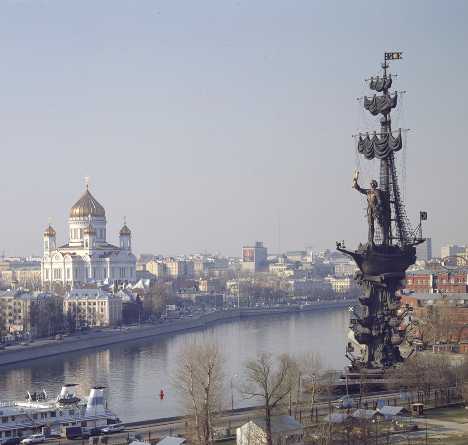 Rumors suggest that Zurab Tsereteli designed the statue to represent Christopher Columbus but could find no takers for it in the USA, Spain or Latin America. He then modified the work and offered the 600-ton piece to his good friend, Moscow mayor Yuri Luzhkov. Moscow’s current mayor, Vladimir Resin, has suggested the statue be moved to St. Petersburg but authorities there won’t touch it with a 308-ft pole. Great Buddha of Thailand 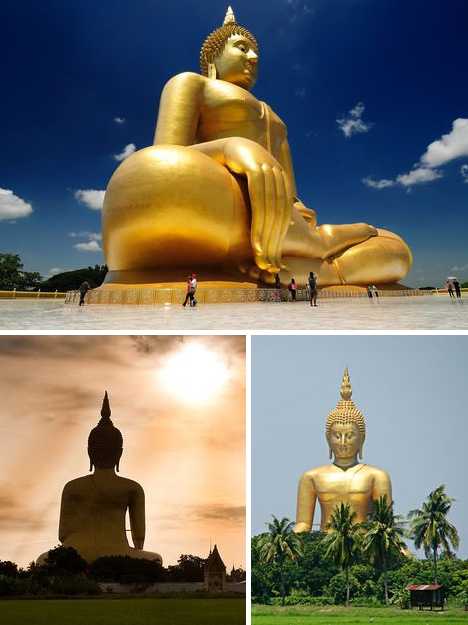 Thailand boasts an abundance of large, golden Buddha statues but none can compare with the Great Buddha of Thailand, situated in the Wat Muang Monastery in Ang Thong province. The 92 m (300 ft) tall statue is 63 m (210 ft) wide at its base. Construction began on the Great Buddha in 1990 and 18 long years passed before it was finally completed! 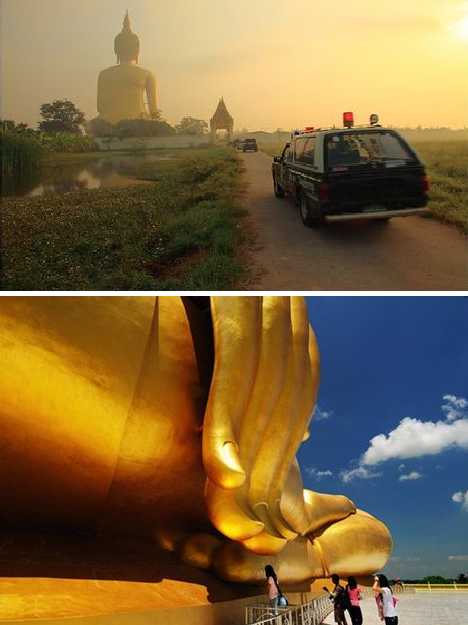 The Great Buddha of Thailand was designed according to the precepts of Theravada Buddhism. Visitors to the site, about 2 hours’ drive north of Bangkok, can also enjoy Wat Muang temple’s “Hell Park.” This Buddhist version of Dante’s Inferno features “macabre scenes of mutilation & death depicted through large colorful figures all set in different themed scenes.” Fun for the whole family! Great Standing Maitreya Buddha, Taiwan 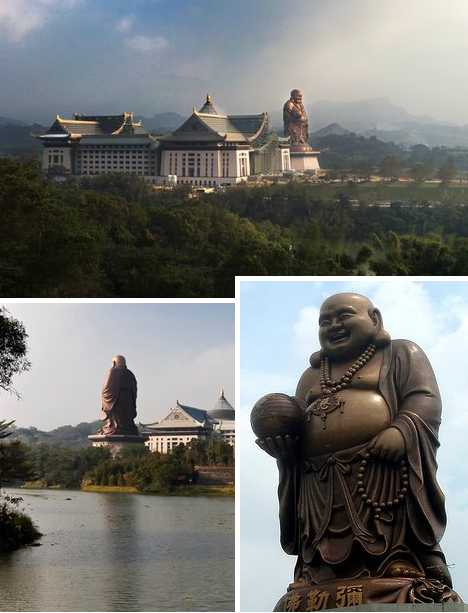  The Great Standing Maitreya Buddha who rises above the shore of Emei Lake near Beipu in Xinzhu County, Taiwan, doesn’t exactly fit the mold of a tall, graceful sculptor’s model – but then again, that’s just not his style. The 72 m (236 ft) tall statue represents a Maitreya (“returning”) Buddha who will return some day to share his enlightenment with the rest of the world. When that day comes, be sure to stay out of his way!  The Great Standing Maitreya Buddha is the largest of four monumental Maitreya Buddhas in Taiwan. All follow the same format: a wide smile, large earlobes and a protruding belly. AS for this Buddha, as the song goes, “He’s got the whole world, in his hands.” Mother Motherland, Ukraine  The 62 m (203 ft) tall Mother Motherland monument in Kiev, Ukraine, was unveiled in 1981 and was constructed as a tribute to Soviet soldiers who died in The Great Patriotic War – known to the rest of the world as World War II. The statue differs from many of its type and size, being made from steel that gleams brilliantly on bright, sunny days. Just imagine how it would look if the original design, which called for a gold leaf over bronze, would have been followed?  The Mother Motherland monument weighs a staggering 560 tons and grasps a 16 m () long, 9 ton sword in its right hand. Combined with the masonry and stone Memorial Hall museum that acts as a base, the statue rises 102 m (334.5 ft) into the skies above Kiev. African Renaissance Monument, Senegal  Say you’re the president of an African nation and you want to commemorate your country’s 50th anniversary of independence with a massive statue… built on a budget, by North Korean engineers. The result would probably look a lot like the 49 m (161 ft) tall African Renaissance Monument that looms over Dakar, Senegal.  “Only the North Koreans could build my statue,” stated Senegalese president Abdoulaye Wade, who at least contracted the design out to native son Pierre Goudiaby. Unfortunately the copper-plated, Stalinist-style statue has aroused condemnation from local Muslim imams who consider the statue’s semi-**** figures to be both blasphemous and idolatrous. On the date of its opening on April 3rd, 2010, a large protest numbering several thousand demonstrated against “all the failures of President Wade’s regime, the least of which is this horrible statue.” Virgen de la Paz, Venezuela 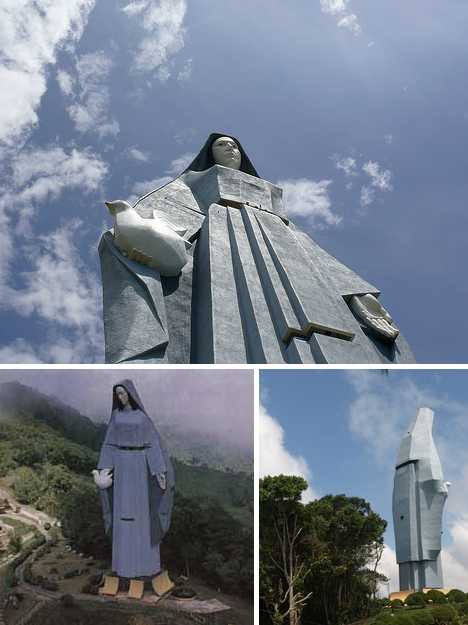 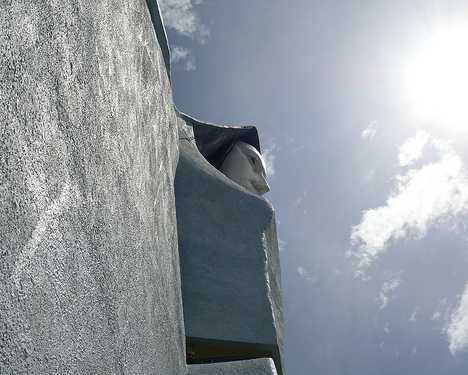 Spanish-born artist Manuel de la Fuente designed the 46.7 m (153 ft) tall Virgen de la Paz, which watches over the city of Trujillo from the top of a nearby hill. The 1,200 ton statue of the Virgin Mary is made from painted concrete and weighs approximately 1,200 tons. 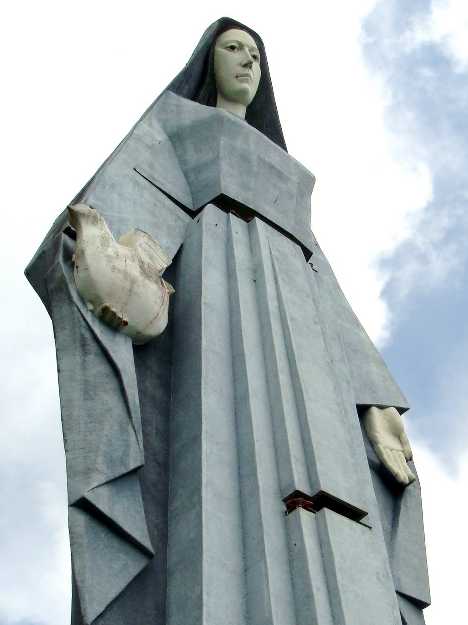 This monumental sculpture is designed so that visitors can climb interior staircases to reach any one of five observation points. Opened in 1983, the statue is the tallest figural sculpture in the Western Hemisphere, just under a meter (-3 ft) taller than the Statue of Liberty – a fact Venezuelan President Hugo Chavez must surely find gratifying. Statue of Liberty, USA 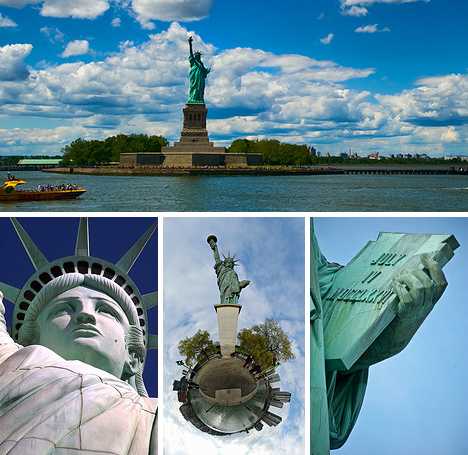 The Statue of Liberty, or more correctly Liberty Enlightening the World, was a joint project of the United States and France: the former built the pedestal while the latter provided the statue. Though the 46 m (151 ft) tall monument to American independence was not officially dedicated until October 28th, 1886, her arm was displayed at the 1876 Centennial Exposition in Philadelphia and subsequently at Madison Square Park in New York City from 1876 to 1882. 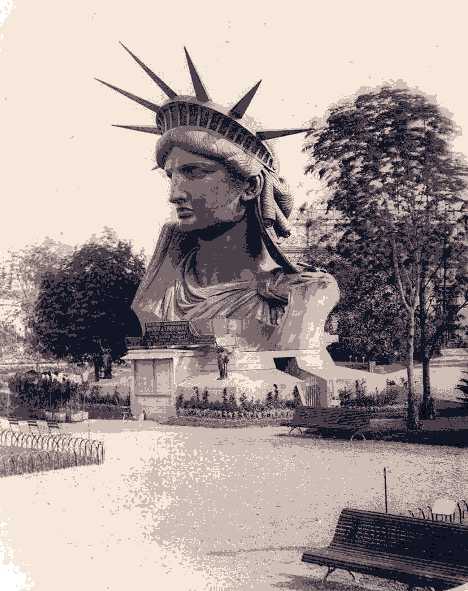 Some Statue of Liberty trivia: New York City’s first ticker-tape parade celebrated the opening of the statue and President Grover Cleveland presided over the dedication ceremony. Both the arm and the head of the statue were finished first so that they could be used to boost fundraising efforts; the image above shows the statue’s head on display at the 1878 Paris World’s Fair. Last but not least, visitors were once able to stand on a small open-air balcony encircling the statue’s torch, but for safety reasons access to the balcony has been prohibited since 1916. Kailashnath Mahadev, Nepal 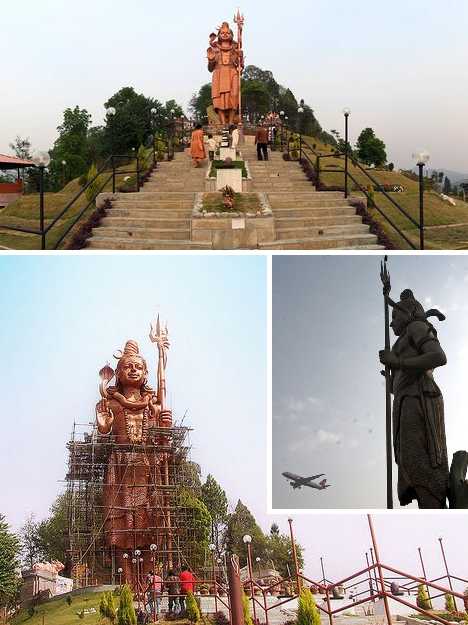 The 43.5 m (143 ft) tall Kailashnath Mahadev statue is located in Saanga, on the border between Nepal’s Bhaktapur and Kavre districts. The statue was conceived and constructed as a private venture by Kamal Jain, chairman of Hilltake Industries Pvt Ltd., a manufacturer of plastic water storage tanks. Construction took 6 years and was mainly completed in 2010. “To my knowledge,” stated Jain, “it is the biggest Hindu religious icon in the world.” 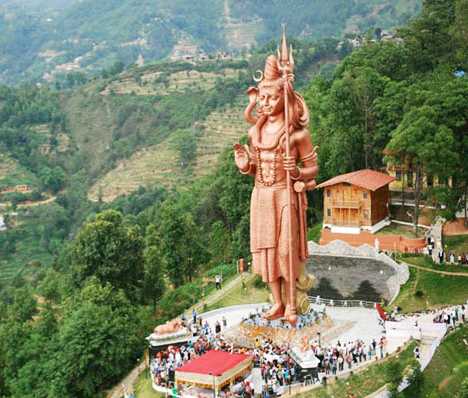 Those wishing to visit this monumental statue of the major Hindu deity Lord Shiva will find it about a half-hour’s drive out of Kathmandu. Hikers should prepare for a journey of 20 km (12.4 miles). Upon arrival, travelers will be pleased to find the complex surrounding the statue includes a 16-room resort, a spa with steam and sauna bath facilities, a children’s park, and a meditation center. Lord Murugan Statue, Malaysia 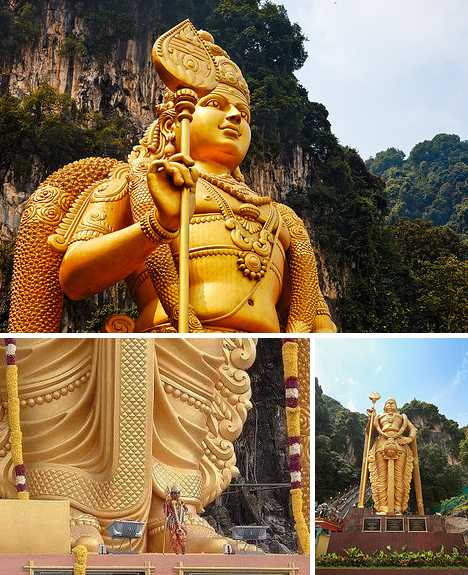 The largest Lord Murugan statue in the world stands 42.7 m (140 ft) tall, at the entrance to the Batu Caves 13 km (8.1 mi) north of Kuala Lumpur, Malaysia. Completed in early 2006, the statue required the use of 1550 cubic meters of concrete and 250 tons of steel support bars, topped off with 300 liters of gold paint. 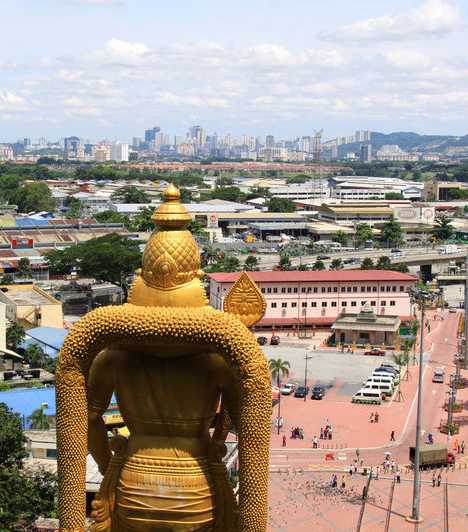 The statue of Lord Murugan is positioned with the Batu Caves behind him while his gaze falls upon the capitol of Malaysia, Kuala Lumpur, off in the distance. Santa Rita de Cássia, Brazil 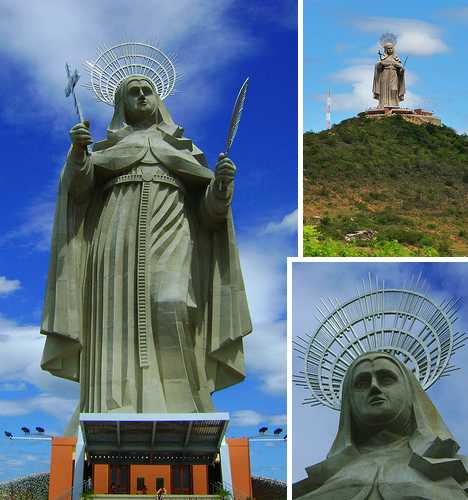 The statue of Santa Rita de Cássia stands 42 m (137.7 ft) tall and is located in Santa Cruz, Rio Grande do Norte, Brazil. When one includes the 6 m () pedestal and 8 m crown, the monument’s total height increases to 56 m or 183.7 feet. Like many of the world’s largest statues, this representation of St. Rita of Cascia is of very recent vintage, having been completed in the year 2010.  Said to be the “world’s largest Catholic statue,” this striking monument is 19.8 m (65 ft) taller than the famous Christ the Redeemer statue that looks down upon Rio de Janeiro from the 700 m (2,300 ft) high peak of Corcovado mountain. Veera Abhaya Anjaneya Hanuman Swami, India 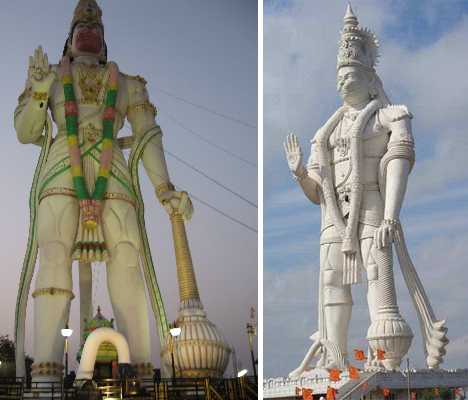 Maybe you haven’t heard of Veera Abhaya Anjaneya Hanuman Swami, but he’s quite big in India. Actually, he’s the biggest… statue, that is. The statue of the Hindu deity Hanuman stands 41 m (135 ft) tall and is located in Paritala, about 240 km () from Hyderabad in India’s Andhra Pradesh province. Veera Abhaya Anjaneya Hanuman Swami is both the tallest statue in India and the tallest statue of Hanuman in the world. 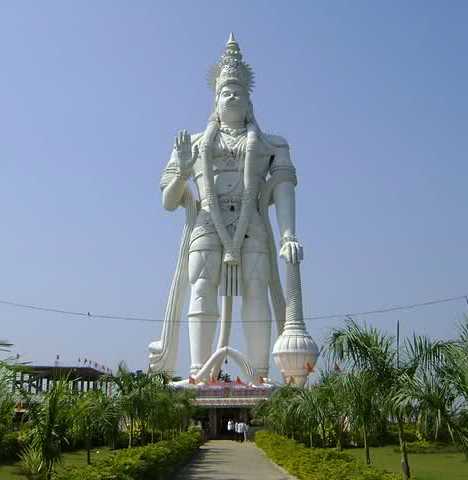 Veera Abhaya Anjaneya Hanuman Swami was completed in 2003 and appears appropriately powerful – as would befit Hanuman, who in Hindu mythology is a General of the Vanaras, a forest-dwelling race of ape-like creatures and and a much-loved disciple of Lord Sri Rama. Genghis Khan Equestrian Statue, Mongolia  The 40 m (132 ft) tall Genghis Khan Equestrian Statue dominates the arid, treeless steppes of Mongolia, much like its human inspiration did almost 800 years ago. The statue is located 54 km (33.5 miles) east of Mongolia’s capitol, Ulan Bator, on the bank of the Tuul River. Plated with 250 tons of stainless steel, the statue looks especially awesome at night when it’s lit up by floodlights.. 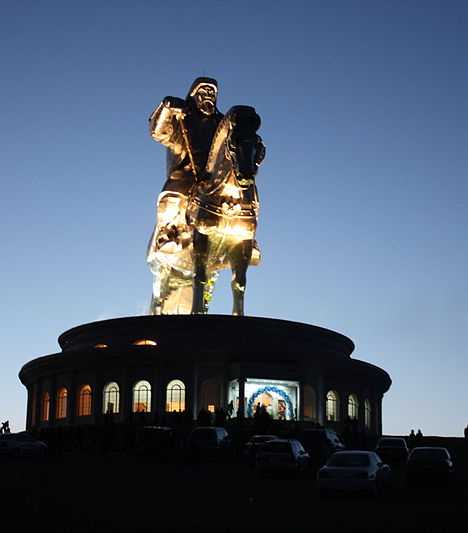 The Genghis Khan Equestrian Statue opened in 2007 but construction of the Chinggis Khaan Statue Complex surrounding the monument has barely begun. “Mongolians are happy when they see this statue,” stated Damdindorj Delgerma, chief executive of the Genco Tour Bureau, “and now people from all over the world will come to learn about the importance of Mongolia in history.” Giddyup!   Do we detect a hint of one-upmanship in what seems to be a race to construct ever-taller statues? Will we one day see a statue so tall, workers will have to don space suits and jet packs just to finish it? It could happen, and not just on an episode of Futurama. “Remember me…” We will, Bend… umm, what was his name again? Want More? Click for Great Related Content on WebUrbanist: 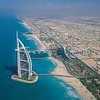 High cost of travel getting you down? Check in to one of the world's 10 tallest hotels and you'll find things are looking up... WAY up! 8 Comments - Click Here to Read More »»  From around the world, here are twelve of the most memorable, unique and extraordinary war monuments and memorials in military history. 18 Comments - Click Here to Read More »»  From the most prolific countries in the world, unique, memorable and with a lot of history behind, these are the twelve picks that will help you decide if humans are as good at honoring peace, as they did with wars. 11 Comments - Click Here to Read More »» مطالب مرتبط با معماری |
|
#5
|
||||
|
||||
|
معماری Civic Cool: 12 Great Contemporary Museums & Galleries 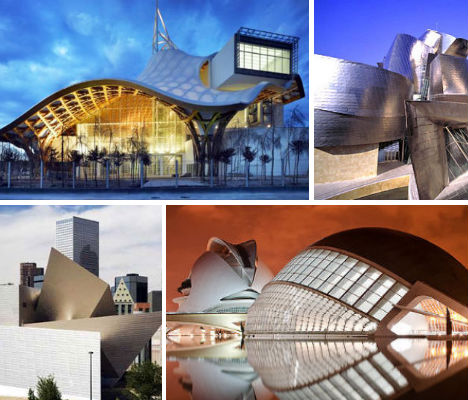 Cultural landmarks and civic assets, well-designed museums can put unknown towns on the map, revitalize entire urban areas, ignite discussion about architecture and draw in tourists from around the world. From iconic and instantly recognizable contemporary structures like the Guggenheim Bilbao to subtle modern renovations and promising projects that have not yet been built, these 12 stunning museums and galleries designed by some of the world’s top architects stand out for their eye-catching visuals, respect for the landscape and history of their settings and sheer brilliance. Centre Pompidou-Metz by Shigeru Ban & Jean de Castines 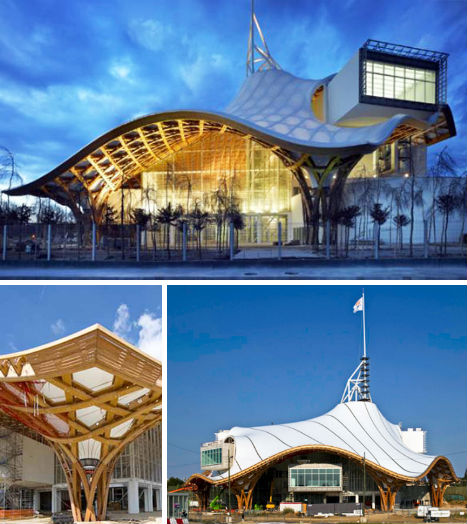 (images via: inhabitat) Architects Jean de Castines and Shigeru Ban teamed up for this stunning expansion of the Centre Pompidou modern art museum in Paris. With an unusual form inspired by Chinese hats and bridges, the Centre Pomidou-Metz features a curving roof made of criss-crossing glue-laminated timber mesh covered in a waterproof fiberglass and Teflon membrane to preserve the works of art inside under the best possible conditions. At night the new facility glows like a lantern, beckoning visitors inside to view the works of modern visionaries like Vassili Kandinsky and Francis Bacon. Denver Art Museum Frederic C. Hamilton Building by Daniel Libeskind 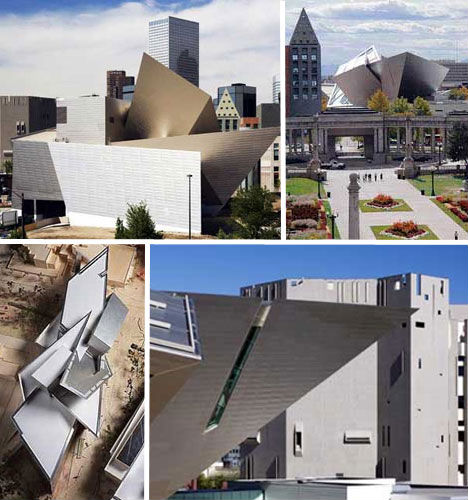 (images via: arcspace) One controversial museum design is the Frederic C. Hamilton Building at the Denver Art Museum, envisioned as an echo of the “craggy cliffs” of the nearby Rocky Mountains by architect Daniel Libeskind. Sharp geometric shapes clad in titanium jut out from the earth in this 2006 expansion, which doubled the size of the museum. But even more so than the dramatic exterior, it’s the unusual interior that drew both criticism and confusion; the gallery’s angled asymmetrical walls hardly seemed fit for art installations. However, artists have met the challenge head-on with adaptive approaches that exploit the interior architecture’s transcendence of typical gallery archetypes. Glaciarium, Glacier National Park, Argentina 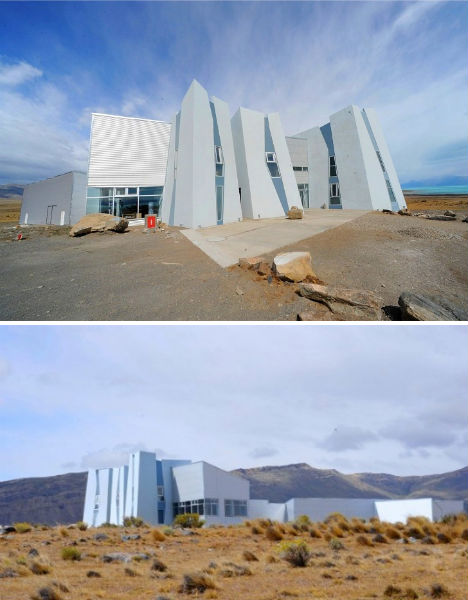 (images via: glaciarium.com) The new iceberg-shaped ‘Glaciarium‘ in Argentina’s Glacier National Park aims to highlight the importance of the region’s glaciers, acting both as a museum that educates visitors on the role that glaciers play in the environment and as a research institute that will monitor the 47 glaciers in the park. Despite the weight of the landscape features that inspired it, the museum sits lightly upon the earth, built on a steel frame that rests upon the natural level of the soil. Groninger Museum, Groningen, Holland 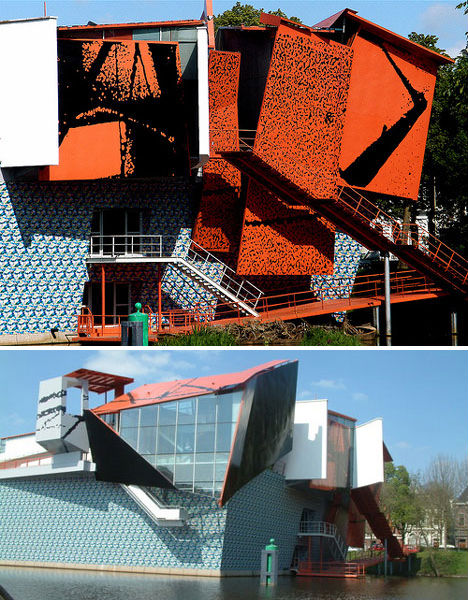 (images via: akbar simonse + panaramio) Continuing the trend of modern museums and galleries that are not just housings for art, but works of art themselves, the Groninger Museum in Holland is an eye-catching collaboration between Alessandro Mendini, Coop Himmelb(l)au, Michele de Lucchi and Phillipe Starck. From certain angles, the Groninger resembles a massive geometric ship perched on the edge of the canal, an aesthetic that reinforces Holland’s watery landscape even as it clashes with the traditional architecture of the region. Deliberately provocative, the design of the Groninger Museum was not immediately popular with locals, but it has become an icon of the city since its completion in 1994. Neues Museum, Berlin, Germany 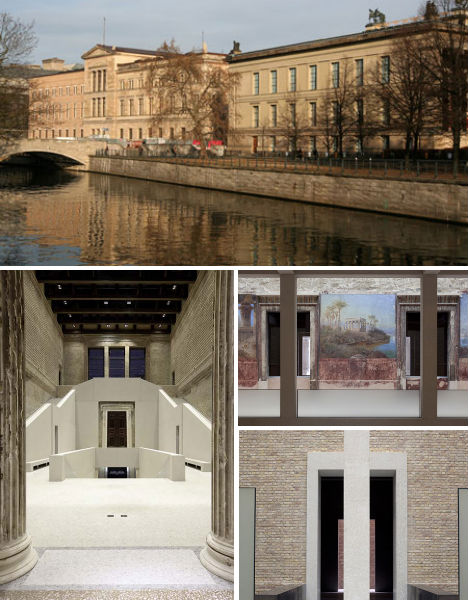 (images via: dezeen) Originally completed in 1849, the Neues Museum of Berlin was nearly destroyed by bombs in World War II and sat abandoned for decades before restoration as a cultural landmark. The renovation of the museum, orchestrated by David Chipperfield Architects, did not erase the wounds but rather preserved them to stand as visible testimony to the museum’s history, and that of Berlin. The architect set out to contrast the museum’s original refinement with the crumbling brick and bullet holes that resulted from the war, and added subtle modern elements that provide visual continuity without taking away from the narrative of the structure. The renovation won the 2011 Mies van der Rohe Award. City of Arts and Sciences by Santiago Calatrava 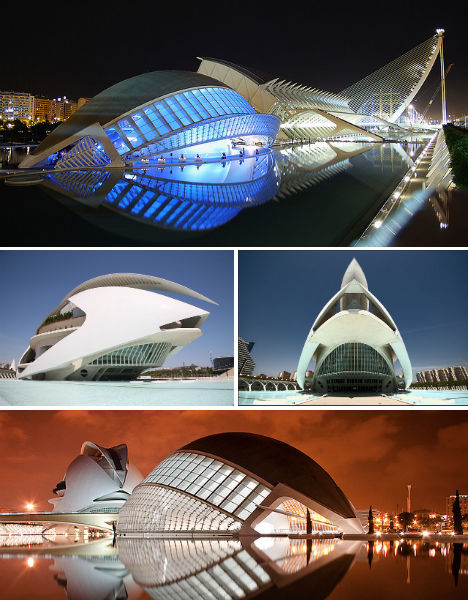 (images via: architecture revived) Renowned Spanish architect Santiago Calatrava has brought his fluid, soaring design aesthetic to cities around the world, but perhaps none mean so much to him as this sprawling museum in his own hometown of Valencia. Like most of Calatrava’s creations, the City of Arts and Sciences is skeletal and organic but almost alien-looking in its starkness. ‘City’ is an apt description for this complex, which includes an opera house, planetarium, science museum, palace of arts and underwater entertainment including theaters and restaurants. Occupying a dry riverbed in what was once an underdeveloped area of town, the City of Arts and Sciences is now Valencia’s top tourist destination, linking the city center to the sea. Imperial War Museum North by Daniel Libeskind 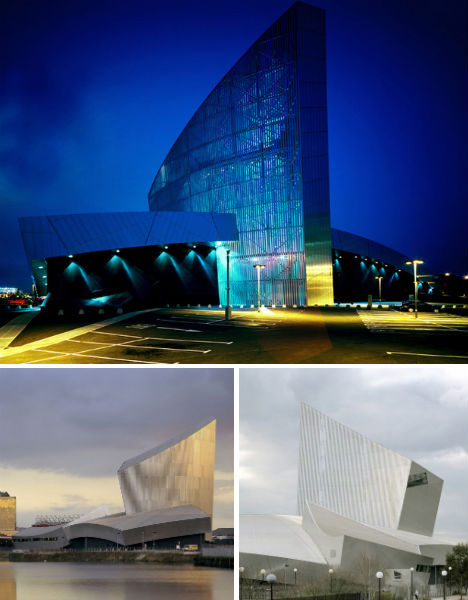 (images via: daniel-libeskind.com) Located on the banks of the Manchester Ship Canal, Daniel Libeskind’s Imperial War Museum in Manchester, England is based on the globe, “broken into three fragments to depict the shattering effect of war on the history of the world.” Referred to as ‘shards’, the three fragments are situated to signify conflicts that took place on land, water and in the air. The Air Shard takes you 180 feet into the sky in the open air, looking down through a steel mesh floor, while the Water Shard overlooks the canal. The gallery floors in the Earth Shard are curved to replicate the curvature of the earth. The Sage Gateshead Music & Art Gallery by Foster + Partners 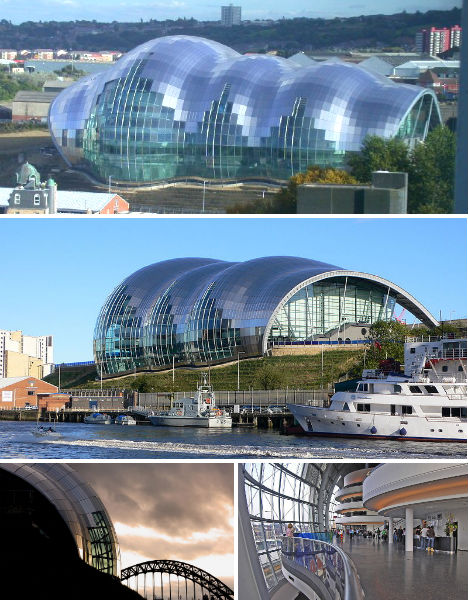 (images via: wikimedia commons) Transforming what was once referred to as a “post-industrial wasteland”, The Sage Gateshead by Foster + Partners cuts a dramatic, glittering silhouette on the River Tyne in Gateshead, England. The curved glass and steel building contains a 1,700-seat concert hall, a 400-seat space for chamber music and a rehearsal room that doubles as a small concert hall and orchestral recording studio. The Sage is also a center for music education, offering classes to the public. No detail was spared in the 10-year planning process, which involved musicians and resulted in such features as ‘spongy’ concrete to increase acoustics. Milwaukee Art Museum by Santiago Calatrava 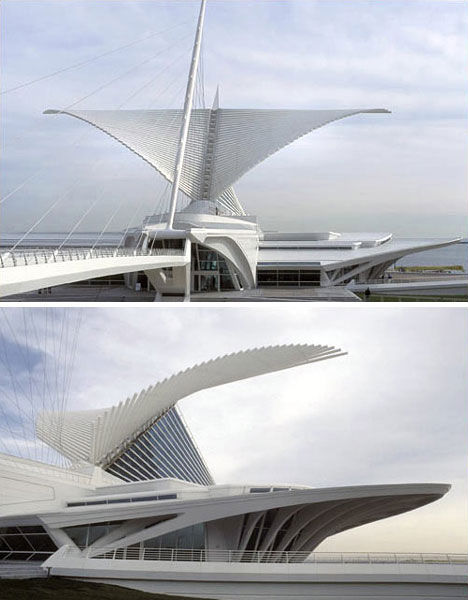 (images via: calatrava.info) Soaring like the skeleton of a great mythical bird over Lake Michigan, the Burke Brise Soleil is Santiago Calatrava’s contribution to the Milwaukee Art Museum in Wisconsin. Bearing the architect’s signature style, the addition is a movable, wing-like sunscreen perched above the concrete Quadracci Pavilion, with a wingspan comparable to a Boeing 747-400. It opens and closes throughout the day, controlling both light and temperature inside the museum and automatically closing when its ultrasonic wind sensors detect winds stronger than 23 miles per hour. The museum is home to over 25,000 works of art. New Museum for Contemporary Art by SANAA 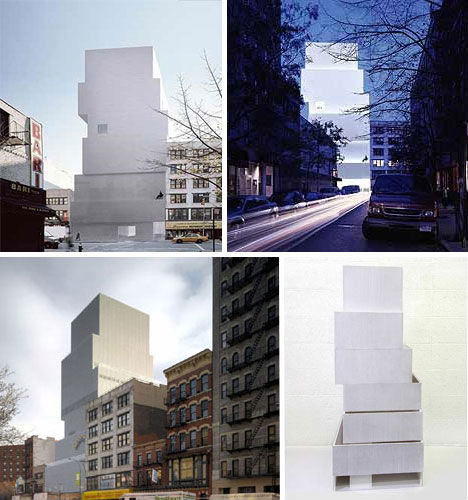 (images via: dezeen) Tall, staggered and white, resembling nothing so much as a precarious tower of baker’s boxes, the New Museum for Contemporary Art – often referred to as New Museum on the Bowery – offers, as New York Magazine put it, “a magically unsentimental intrusion, an antidote to the generic luxury springing up around it.” Designed by Tokyo architects Kazuyo Sejima and Ryue Nishizawa/SANAA, the nine-level structure is the first fine art museum ever constructed from the ground up in downtown Manhattan. Opening in December 2007, the New Museum is a pristine contrast to the grittiness of the Bowery’s reputation (which is changing today, as gentrification sets in). Clad in a seamless aluminum mesh, the structure is airy and spacious with lots of natural light yet few distractions from the world outside. Guggenheim Museum Bilbao by Frank Gehry 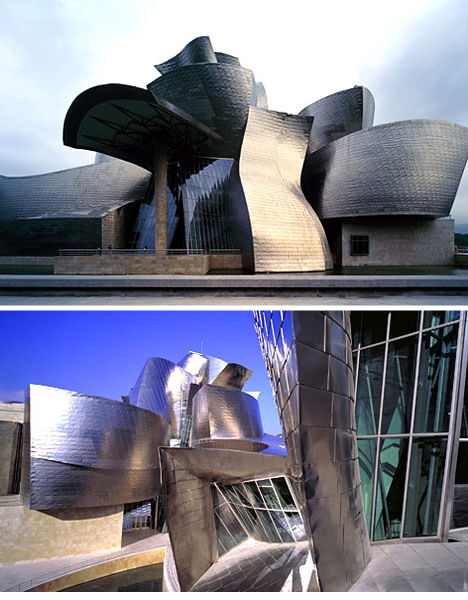 (images via: wikimedia commons) Perhaps no art museum in the world is quite as iconic as the Guggenheim Bilbao, which single-handedly put a relatively unknown small Spanish city on the map and stands out as a prime example of bold contemporary architecture. With a design that is both fluid and geometric, the light-catching, ship-like structure by famed architect Frank Gehry bears reflective panels resembling fish scales, reflecting the port town which serves as its setting and the river Nervión upon which it sits. National Museum of Qatar by Jean Nouvel 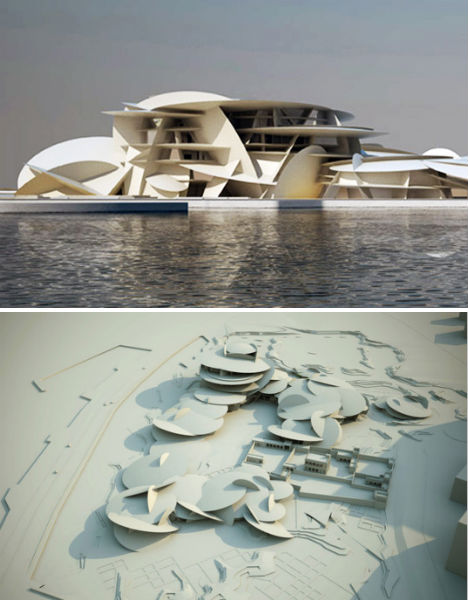 (images via: jean nouvel) Inspired by desert architecture, the new National Museum of Qatar by Pritzker Prize-winning architect Jean Nouvel is made up of a series of interlocking discs which will create pockets of sheltered areas providing refuge from the harsh sun. The 430,000-square-foot cultural center, which will also include cafes, shops, offices and research centers, will be built around the historic Fariq Al Salatah Palace. From above, the complex resembles a caravanserai, a roadside inn providing refuge for desert travelers. Want More? Click for Great Related Content on WebUrbanist:  From the colorful Groninger Museum to the airy Osaka National Museum of Art, these 15 museums are just as striking as the art housed within them. 26 Comments - Click Here to Read More »»  Gehry is best known for his curvy, metalic wave-form museums in Bilbao, Seattle, Los Angeles and Minneapolis, but it all started with strange impulses in the 70s. 50 Comments - Click Here to Read More »» 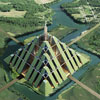 From floating eco-cities to sustainable skyscraper farms, modular folding origamic architecture to gigantic green super-spires, here are 24 future green designs. 25 Comments - Click Here to Read More »» مطالب مرتبط با معماری |
|
#6
|
||||
|
||||
|
معماری Scary Scaffolding: 24 Dangerous Construction Sites 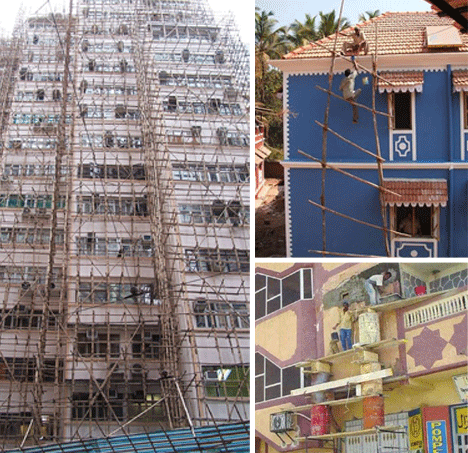 Scaffolding is a huge part of any renovation or construction project. Thankfully, there are strict safety guidelines to ensure a stable platform for construction workers who have to traverse the maze of pipes and rails that make up any scaffolding project. Unfortunately, not every country (or job site) follows the rules… 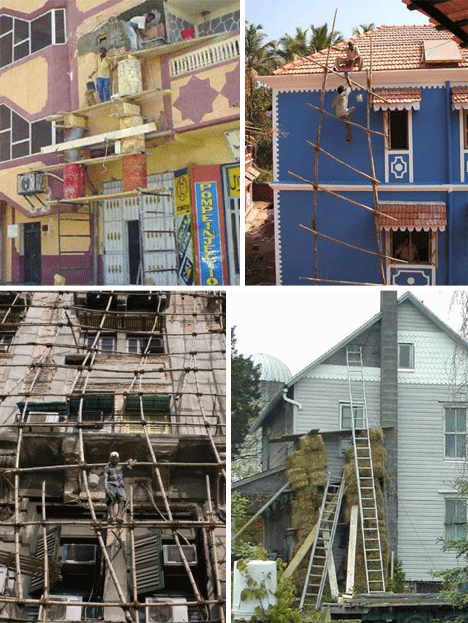 (Images via forkparty, dassad, pollsb, sportspool) Some things are great to do DIY, but scaffolding is not. These construction projects are balanced on equal parts hope and recklessness. Piling the contents of your garage into a tower does not constitute a scaffold. 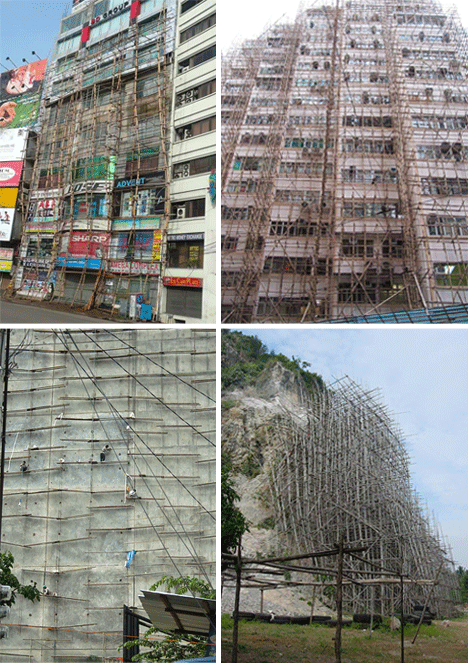 (itchyfeetchronicles, gadling, oobject, flickr) Some countries have less standards for scaffold safety. In the US, rails are required, along with a specific set of tested materials that are known to be able to withstand the required forces. Many other countries simply lash bamboo poles together (a surprisingly strong material) and then allow construction workers to clamber to dizzying heights.  (Images via seattletimes, ruthie822, safetyphoto, spurgeonblog, flickr) When construction companies tackle huge projects, that scaffolding can get out of control. These job sites look like mini scaffold cities, a giant pincushion encapsulating towers of stone and allowing workers to “safely” reach every nook and cranny. 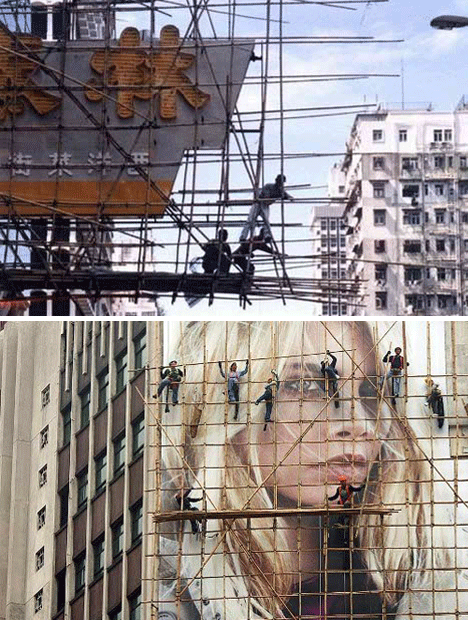 (Images via scaffoldbuilders, deroucicho) When construction work is done in some countries, their platforms look more like an improvised gridwork/ladder than the carefully structured scaffold work found in US cities. While there is something cool about crawling up and down a latticework to do construction work, it’s not as cool when workers slip. 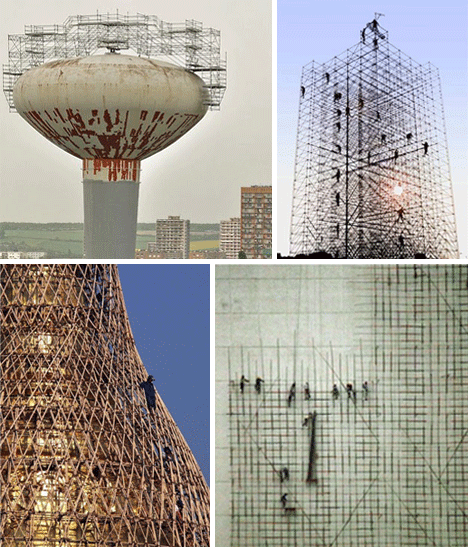 (Images via funnystuff, syracuseinjurylawyerblog, deroucicho, freshpics) When one is sick of sitting in a cubicle, it’s important to remember that some workers would love to have their feet planted on solid ground.  (Images via outthereliving, ascentbuilders, designboom, ourbrooklynhome, building) Poor scaffolding is not simply a foreign problem. Whenever homeowners decide to take construction projects into their own hands, things can get quite messy. Unstable contraptions held together with a few stray nails are not what most people would like to work on. Want More? Click for Great Related Content on WebUrbanist:  Each of the five projects listed here took their toll financially and were paid for in part with human lives. 8 Comments - Click Here to Read More »» 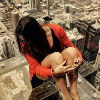 A glass balcony on the Willis Tower, a vertigo-inducing overlook in Norway and 11 other towering platforms and observation decks offer views unlike any other. 1 Comment - Click Here to Read More »»  Ever wonder how your phone's signal stays so clear even when you're not within sight of a tower? Cellular towers are really hiding in plain sight all around us. 3 Comments - Click Here to Read More »» مطالب مرتبط با معماری اخرین اخبار و مطالب مرتبط با معماری را از آدرس http://p30city.net/search.php?do=fin...&starteronly=1 مشاهده کنید |
|
#7
|
||||
|
||||
|
معماری True Colors: Compressed Movie Prints Show Film Moods 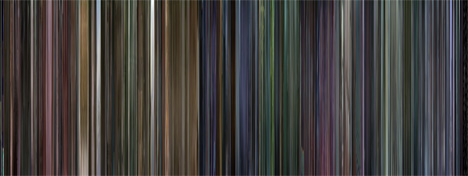 When you watch your favorite movies over and over, you might start to acquire the ability to recite every line. Every frame of the movie looks familiar and you can predict how the light will change with every scene. But would you recognize your favorites if they were smooshed down into single pictures? (Above: Requiem for a Dream)  (Blade Runner) 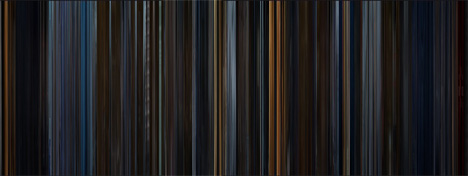 (V for Vendetta) These impressive works of art were created by MovieBarCode, a website that takes every single frame of your favorite movies and compresses them single-frame pictures. 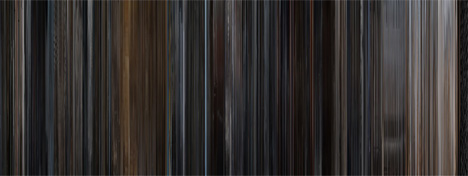 (Se7en)  (Princess Mononoke) The resulting images are surprisingly lovely, like colorful bar codes with hidden stories to tell. All of the colors of each movie are expressed in the thin vertical stripes, making for some truly impressive new pieces of art.  (The Lion King)  (The Matrix) It is even possible to tell the mood and overall feel of each film just by the color scheme in these abbreviated representations. Some are predictable, like the cartoons with plenty of bright colors and the overly-green Matrix. Some exhibit long stretches of the same scenery, such as in The Big Lebowski. 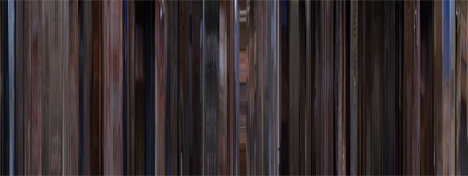 (The Big Lebowski)  (The Fifth Element) The website has an impressive number of movie bar codes posted already, but the artist behind the site also takes requests for any that haven’t yet been created. Prints of the amazing works of art can be purchased from the MovieBarCode website. Want More? Click for Great Related Content on WebUrbanist:  Early monster movies molded the modern consciousness... with a little claymation and a lot of screaming. These are the coolest classic monster movie posters. 4 Comments - Click Here to Read More »»  Fans with a ton of enthusiasm and even more photoshop skill have taken their favorite film posters to a new level. 4 Comments - Click Here to Read More »»  Ever since there have been movies, there have been bold and creative movie posters to draw viewers into the theaters. 8 Comments - Click Here to Read More »» مطالب مرتبط با معماری اخرین اخبار و مطالب مرتبط با معماری را از آدرس http://p30city.net/search.php?do=fin...&starteronly=1 مشاهده کنید |
|
#8
|
||||
|
||||
|
معماری Wild Rides: 12 Theme Park & Coaster Concepts 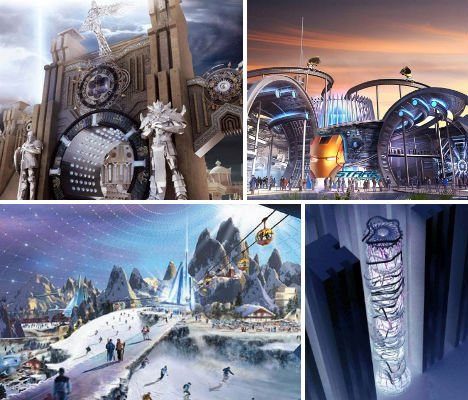 Amusement parks offer an adrenaline-soaked escape from reality, transporting us into fantasy worlds where pretty much anything is possible – and sometimes, the concept art for a proposed theme park can be nearly as exciting as the park itself. These 12 concepts include eagerly awaited new theme parks expected to open soon, projects that have been shelved and incredibly imaginative ideas that could never actually exist. World of Warcraft & Starcraft-Themed Amusement Park 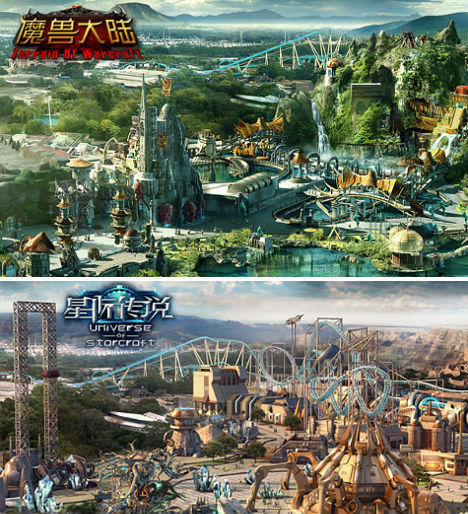 (images via: manaflask) It’s not a joke: China really is building a World of Warcraft-themed amusement park (with a Starcraft section to boot). It’s called Joyland, and it’s under construction in the Wunjin district with an expected opening sometime this spring. For the time being, however, it’s still just a concept, with fantastical illustrations giving us an idea of what to expect. Vertical Theme Park for New York City 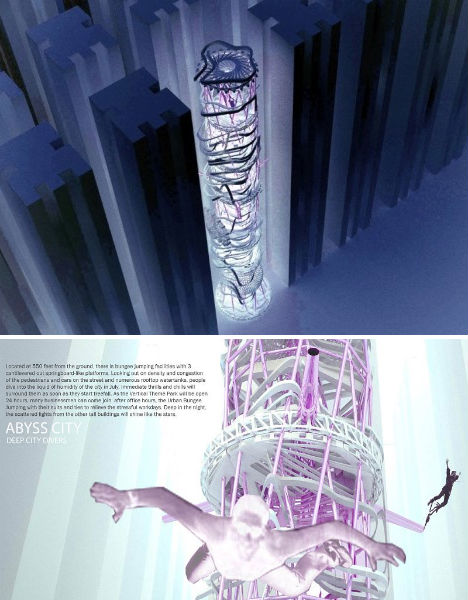 (images via: evolo) Imagine all of the rides in a typical theme park compacted into a single skyscraper – in the middle of Manhattan. Architect Ju-Hyun Kim packs a flume ride, sky promenade, a roller coaster, a ferris wheel, restaurants, a vertical carousel and a space theater into a tower that fits right in with the surrounding architecture. This novel concept not only shrinks the often-sprawling footprint of an amusement park into a much smaller space, but also keeps the fun inside city limits, cutting back on the need for travel. Dubailand: Marvel Superheroes Theme Park 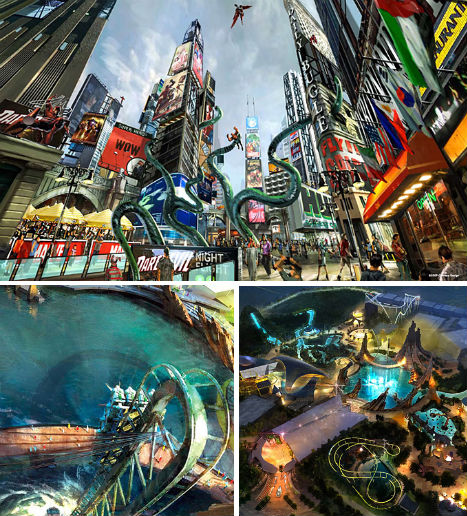 (images via: conceptartworld) Before Disney bought comic book empire Marvel, a deal was struck that allowed a massive Marvel theme park be to constructed as part of the multi-billion-dollar Dubailand, an amusement park complex rumored to be 20 times larger than Disney World. The Marvel section of the park will include 17 rides and attractions and occupy over four and a half million square feet. Said to be opening in late 2011, the actual status of the project is unclear due to Dubailand’s financial difficulties. The developers of Dubailand had hoped to attract 15 million tourists a year by 2015. Disney’s Forgotten Water World 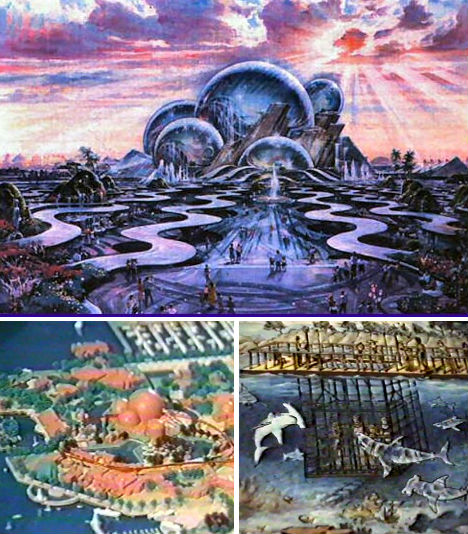 (images via: jimhillmedia) Once upon a time, Disney imagineers planned a $2 billion seaside park for Long Beach Harbor, California. Port Disney was to focus on the myths and mystery of the ocean, and the park’s crowning glory was Oceania, a massive interactive aquarium with a tidal exchange with the ocean to create real tidal pools in the outdoor exhibits. Guests would have snorkeled in five different reef environments or even enjoyed a few terrifying moments in a shark cage. Doomed due to concerns about the impact to the coastline, this project got new life when some aspects of it were used at Tokyo DisneySea. Theme Planet by Michael Sormann 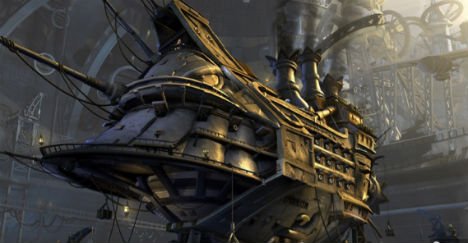 (image via: io9) Theme Planet, a short film by 3D artist Michael Sormann, explores the concept of an entire planet being one big theme park. Aside from fantastic animation, the film includes glimpses of fun attractions and features like the ‘Barracuda’ steam-powered train. Dubai Space & Science World 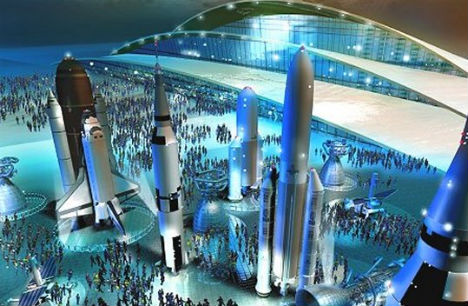 (images via: realtyna.com) Before the economy crashed, Dubai development seemed like a freight train with busted brakes. Today, it’s unclear whether many of the spectacular concepts proposed for the city will ever actually be built, but what about those already under construction? It’s hard to say whether we’ll ever actually see the ‘Space & Science World’ attraction in Dubailand ever come to life. Dubailand Ski Dome  (images via: skidubai.com) One of Dubailand’s biggest attractions, ‘Sunny Mountain Ski Dome’ or ‘Snowdome’, is already rumored to have been shelved altogether due to stratospheric costs. A massive steel dome would have enclosed an artificial mountain range covered in snow for a complete ski resort with winter activities and arctic animals like polar bears and penguins – all in the middle of the desert. Robot Land Theme Park in South Korea 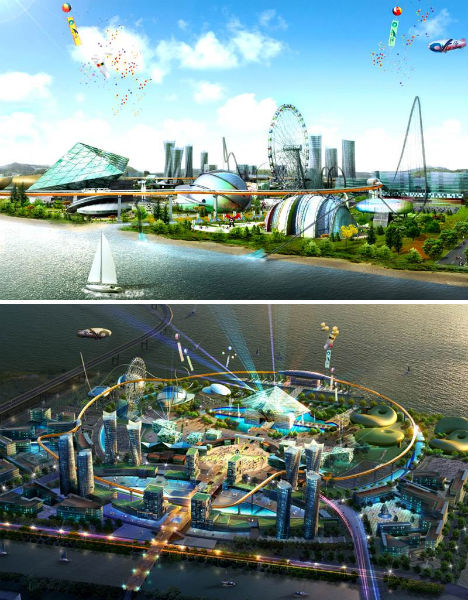 (images via: engadget) It’s not finished yet, but in 2013, Robot Land will reportedly open its gates to visitors keen on experiencing every form of robot entertainment currently known to man. There will be robotic rides, robotic fish in aquariums for visitors to manipulate, robotic performers and even robotic cashiers. Radiant Copenhagen: New Uses for Subway Stations 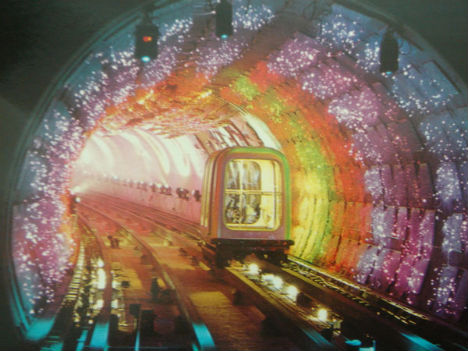 (image via: radiant cophenhagen) What’s to come in the distant future for the city of Copenhagen? One of over a hundred ideas submitted to the Radiant Copenhagen project envisions a sparkling underground amusement park in place of the current Vanløse subway station, to be built after the imagined abolishment of public transport between 2060 and 2100. Two Amusement Park Concepts for Saudi Arabia 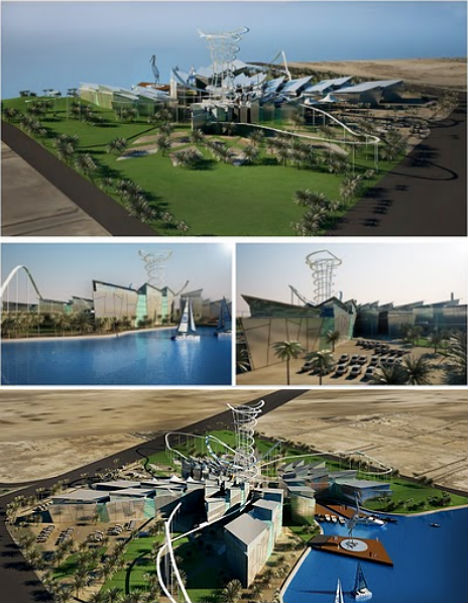 (images via: sidell gibson) Sidell Gibson Architects created two concept designs for amusement parks in waterfront locations in Saudi Arabia, each containing a wide range of activities like ice skating, cinemas, rides, virtual games, indoor water sports and outdoor swimming pools. “We have drawn inspiration from the local habitat and in particular the flora and fauna of the Red Sea and Arabian Gulf coasts and the immediate adjacency of the water itself. The starting point is the way seeds are arranged in a sunflower or daisy. The pattern of intersecting parabolic spirals is the result of a natural growth process where new, smaller seeds emerge from a centre and displace larger and older ones… One benefit of this geometric pattern is that it lends itself to being developed flexibly, in many ways without loosing the sense of the inherent geometry.” The Euthanasia Coaster 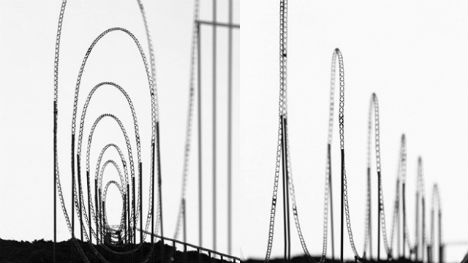 (images via: io9) Perhaps, from the drawings, this roller coaster doesn’t strike you as all that impressive. It’s not flashy concept art; it’s really quite simple. But get on this roller coaster, and it’s the last thing you’ll ever do. Royal College of Art PhD student Julijonas Urbonas created Euthanasia Coaster for the exact purpose that the name suggests; the coaster is designed to starve the rider’s brain of oxygen. The idea is that if you choose to go, you can go in a way that is thrillingly, amazingly, mind-numblingly fun. “Thanks to the marriage of the advanced cross-disciplinary research in space medicine, mechanical engineering, material technologies and, of course, gravity, the fatal journey is made pleasing, elegant and meaningful.” Want More? Click for Great Related Content on WebUrbanist: 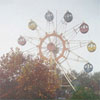 Some of the most haunting abandonments are those that were once used to entertain and educate - filled with vast once-vibrant gathering and learning spaces. 28 Comments - Click Here to Read More »»  Creepy and delightfully twisted, these amusement parks wont necessarily amuse the kids! 21 Comments - Click Here to Read More »» 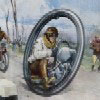 Concept cars, dream machines and technology-packed prototypes give us hints of what the future holds. Here are 15 that have not, though they live on in our imaginations. 8 Comments - Click Here to Read More »» مطالب مرتبط با معماری اخرین اخبار و مطالب مرتبط با معماری را از آدرس http://p30city.net/search.php?do=fin...&starteronly=1 مشاهده کنید |
|
#9
|
||||
|
||||
|
معماری Almost Famous: 13 Houses from Major Hollywood Films 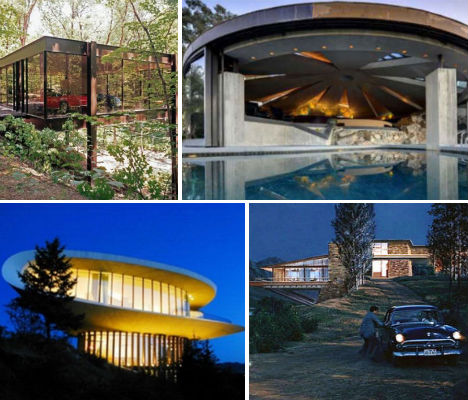 No matter how engaging the actors or riveting the plot, sometimes, you’re distracted by something else in a film: a dramatic architectural setting that’s so dazzling, it’s practically a character in itself. We can’t help but drool over Jackie Treehorn’s Malibu Beach manse in ‘The Big Lebowski’ and covet Mia Wallace’s stylish living room in ‘Pulp Fiction’. These 13 (mostly) real modern houses featured in major films are memorable even when the movies are not, despite – in some cases – only appearing for a moment or two. Ferris Bueller: Cameron Frye’s House 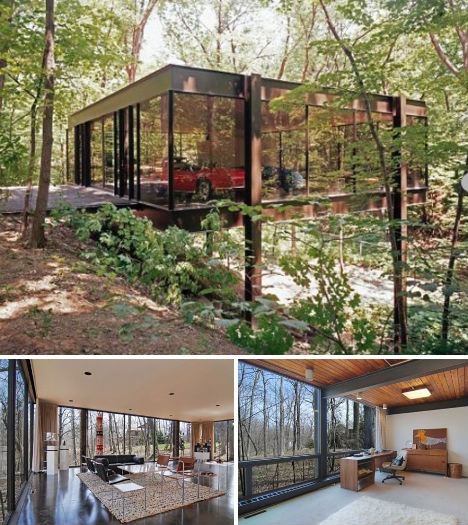 (images via: curbed) The memorable modern home in Highland, Illinois that held Cameron Frye’s father’s Ferrari in the 80′s classic ‘Ferris Bueller’s Day Off’ could be yours for just $1.65 million. After languishing on the market, the home is getting a modern makeover complete with high-end furniture and will be back up for sale in a month or two. The 4-bedroom, 4-bath house was designed in 1953 by A. James Speyer and David Haid and is officially known as the ‘Ben Rose House’. Twilight: The Cullen Residence 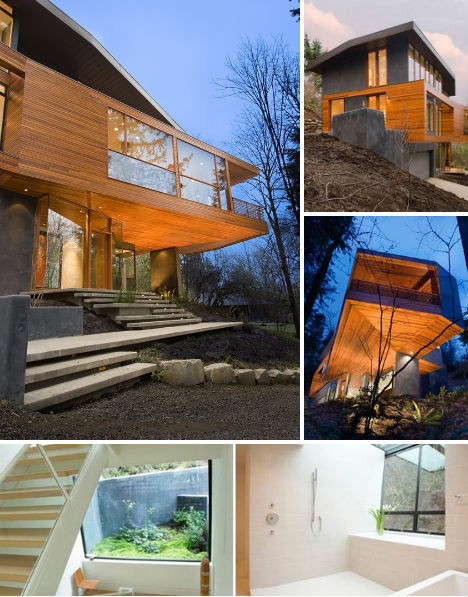 (images via: design tavern) The main vampire family in the ‘Twilight’ series, the Cullens, don’t lurk in the dark recesses of a run-down Victorian like you might expect. In the film adaptation of the first book, ‘Twilight’, film producers took the liberty of placing Edward Cullen and Co. in a bright, modern home known as the ‘Hoke House’, owned by Nike executive John Hoke. For subsequent movies ‘New Moon’ and ‘Breaking Dawn’, the production moved on to yet another modern house in West Vancouver, this one designed by architect Arthur Erickson. That 5,100-square-foot stunner is on the market for $2,998,000. The Big Lebowski: Sheats-Goldstein Residence 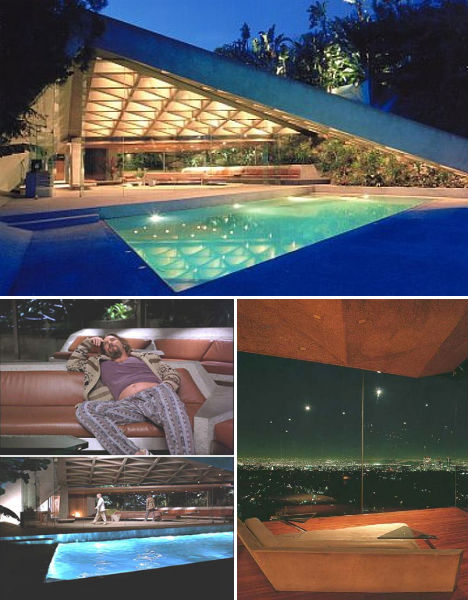 (image via: wikimedia commons, blogging.la) The modern Malibu party house occupied by ****ographer Jackie Treehorn in the film ‘The Big Lebowski’ is actually located in Benedict Canyon. The Sheats/Goldstein residence was designed by architect John Lautner, whose distinctive homes are frequent film settings. An example of American Organic Architecture, the Sheats/Goldstein residence is built into the sandstone of the hillside and intended to mimic a cave. It also appeared in Charlie’s Angels: Full Throttle and Bandits. Bladerunner: Frank Lloyd Wright Ennis House 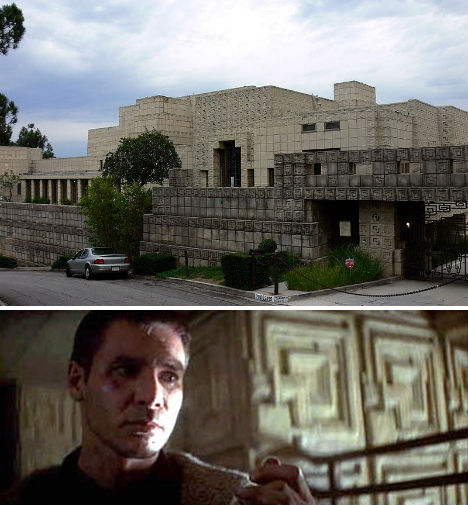 (images via: wikimedia commons, architettura.it) Among the most iconic and instantly recognizable real-life film settings, the Ennis House and its prominent architectural detail has been featured in over a dozen movies, a television show, commercials, fashion shoots and music videos. Although its exterior only appeared briefly in a single on-location shot in ‘Bladerunner’, it’s best remembered for that film (the interior shots were recreated on a sound stage). Other films like’ Rush Hour’ and ‘The Thirteenth Floor’ filmed scenes in its cathedral-like interior. The blocky Mayan Revival-style tiles are so iconic, they were cast and recreated for a scene in ‘Mulholland Drive’. Sleeper: Sculptured House 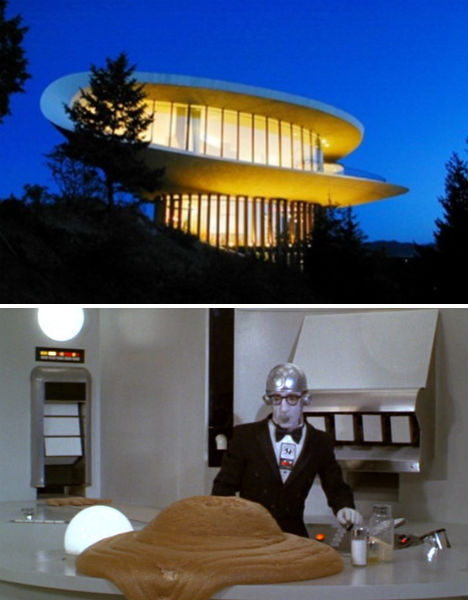 (images via: out front colorado, the movie zombie) Put on the market in 2010 and swiftly sold, the Sculptured House, an unusually shaped mid-1960s home, served as a major setting in the Woody Allen movie ‘Sleeper’. Located just outside of Denver, the home – referred to by locals as the mushroom house or the clamshell house – was designed by architect Charles Deaton. The new owners gave it an energy-efficient makeover and have reportedly offered it up to HGTV as the setting for a reality show. Diamonds are Forever: Bond Villain’s Lair 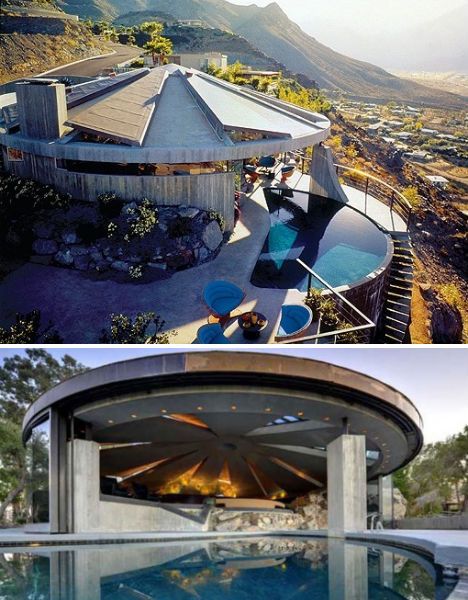 (images via: palm springs life) The bold modern home that serves as Bond villain Ernst Stavro Blofeld’s lair in ‘Diamonds are Forever’ practically steals the show with its massive concrete domed roof looming over an indoor-outdoor swimming pool. The Elrod House was also designed by John Lautner, an apprentice of Frank Lloyd Wright who crafted an iconoclastic and sometimes controversial style that interacts strongly with the buildings’ natural environments. Designed to shield the Palm Springs home from the harsh desert sun, the concrete dome echoes massive boulders that were uncovered on the hillside during construction. LA Confidential: Lovell House 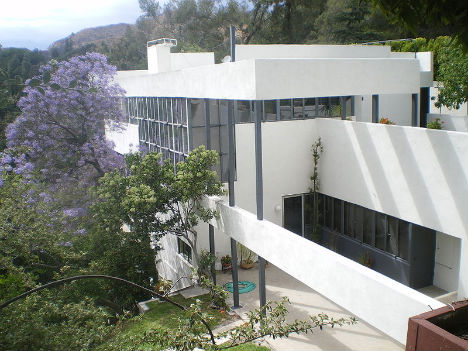 (images via: wikimedia commons) Considered an important structure in modern architectural history, the Lovell House was the first steel frame home in the United States and an early example of the use of gunite (sprayed-on concrete). It was designed and built by Richard Neutra in the International Style in 1927 and is located in Los Angeles. It appeared as the home of Pierce Morehouse Patchett in the 1997 film ‘L.A. Confidential’. Sleepless in Seattle: Tom Hanks’ Houseboat 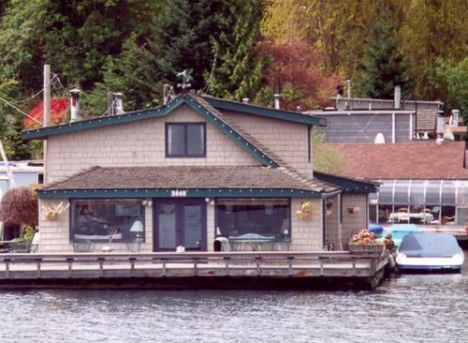 (image via: seattlepi) This home not only stands out as one of the largest floating homes on Seattle’s Lake Union, but for playing a role in the sappy 1993 Tom Hanks and Meg Ryan movie, ‘Sleepless in Seattle’. The 4-bedroom houseboat, built in 1978, is not open to the public but can be spotted by fans of the film from either land or sea (by hitching a ride on the Duck Tour). Chloe: Drew Mandel House in Toronto  (images via: dwell) The 2010 movie ‘Chloe’ wasn’t exactly a stunner, but one of its main settings certainly was: a geometric steel-and-glass home in Toronto by architect Drew Mandel. The Ravine House was chosen for its dramatic location and its glassy interiors, which make for interesting filming angles, especially from upstairs. But those who have seen the movie won’t even recognize the outside of the house, which, despite its beauty, was not featured in the film. The owners wanted to retain some semblance of privacy, so the facade of another house down the street was used for exterior shots. A Single Man: The Schaffer Residence 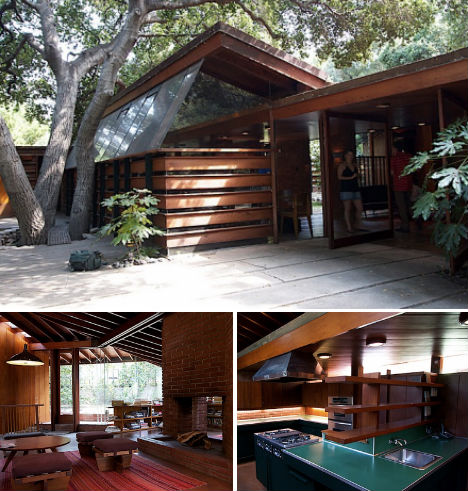 (image via: oliver yaphe) Incidentally the third Julianne Moore film on this list, ‘A Single Man’ was all eye candy. Helmed by first-time director and famed fashion designer Tom Ford, the Oscar-winning vehicle for leading man Colin Firth was shot partially in a 1949 John Lautner home. The Schaffer Residence is dark and moody, located on a heavily wooded plot in the bottom of a valley in Glendale, California. Pulp Fiction: Mia Wallace’s Modern Abode 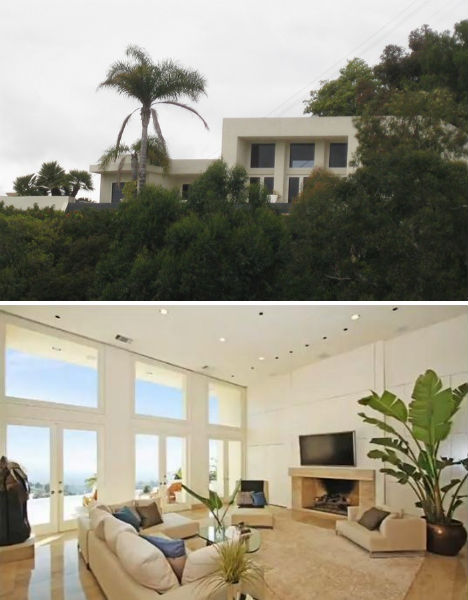 (images via: i am not a stalker) The real-life home in which Uma Thurman’s character Mia Wallace lives in the movie ‘Pulp Fiction’ is located – where else? – in Beverly Hills, just a few miles north of Sunset Boulevard. While curious passersby won’t see much more than a geometric gate, the magic of modern real estate listings give us a glimpse of the interiors, which we’ll forever associate with the song ‘Girl, You’ll be a Woman Soon.’ The three-bedroom home, which was built in the ’60s, sold in 2010 for an undisclosed sum, though the listing didn’t even mention its prominent role in one of the biggest movies of the 1990s. The Lake House: Modern Steel on Stilts 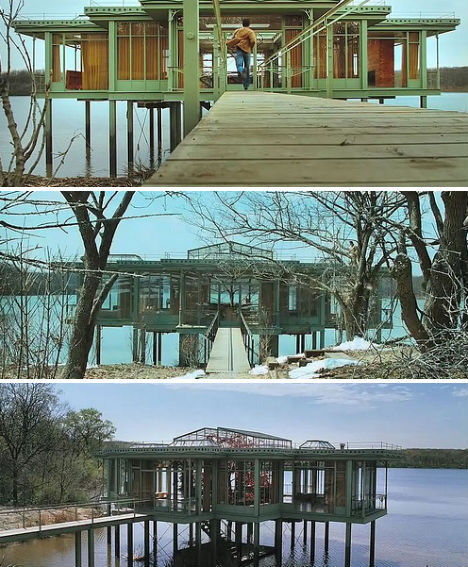 (images via: mod house media watch) The 2006 movie ‘The Lake House’ might have been a critical flop, but there’s one element of it that still stands out: the house itself. Ostensibly located in the Chicago area, the modern house, a glass box on stilts at the end of a pier, is minimalist steel in the tradition of architect Mies van der Rohe. Sadly, the house – which was constructed especially for the movie – was dismantled when filming was complete; local laws don’t allow dwellings on this undeveloped portion of the lake. North by Northwest: Vandamm House 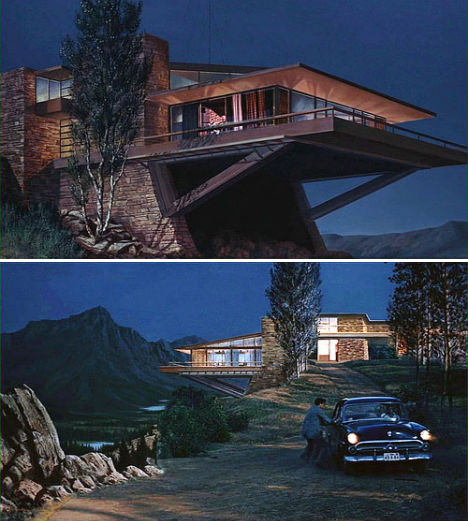 (images via: dailyicon) Few modern homes from films are so beloved by architecture geeks as the Vandamm House, which was practically a main character in Alfred Hitch****’s unforgettable ‘North by Northwest’. And so it is often with bitter disappointment that Hitch**** fans learn that the Vandamm House is not a creation of Frank Lloyd Wright – or even a real house at all. It was an elaborate MGM film set, placed on top of Mount Rushmore using movie magic, but it was indeed designed to resemble the works of Wright, who was the most popular architect when the film was shot in 1958. Hitch**** wanted the home (naturally belonging to a villain) to be not just impossibly luxurious but also familiar, a requirement that couldn’t be met by any real-life location. Want More? Click for Great Related Content on WebUrbanist:  The close proximity to water inspires some architects to create unique and amazing beach and lake houses. 41 Comments - Click Here to Read More »»  Have you ever wondered what really happened to that mall in The Blues Brothers or where Tarkovsky filmed those jarring and surrealistic scenes in Stalker? 21 Comments - Click Here to Read More »» 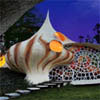 Custom homes come in all shapes and sizes, but few stand out so much as these unique examples of residential architecture. They are, however, anything but cheap. 10 Comments - Click Here to Read More »» مطالب مرتبط با معماری اخرین اخبار و مطالب مرتبط با معماری را از آدرس http://p30city.net/search.php?do=fin...&starteronly=1 مشاهده کنید |
|
#10
|
||||
|
||||
|
معماری Moving Pictures: Stunning Photographs Brought to Life 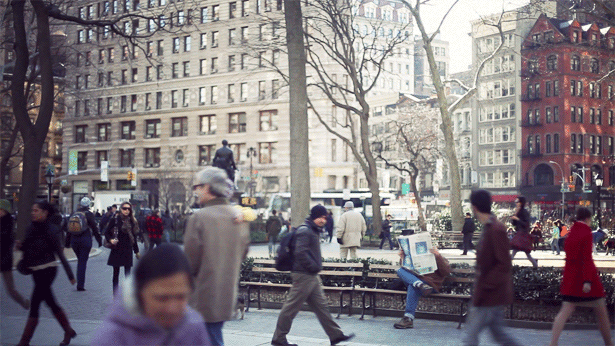 The world has been entranced by photographs since their invention well over a century ago. When video came along, however, that was even better. Somewhere along the way, we have learned to love both still and moving images. Now, well into the 21st century, a team of artists is combining them in a fantastically unusual way. 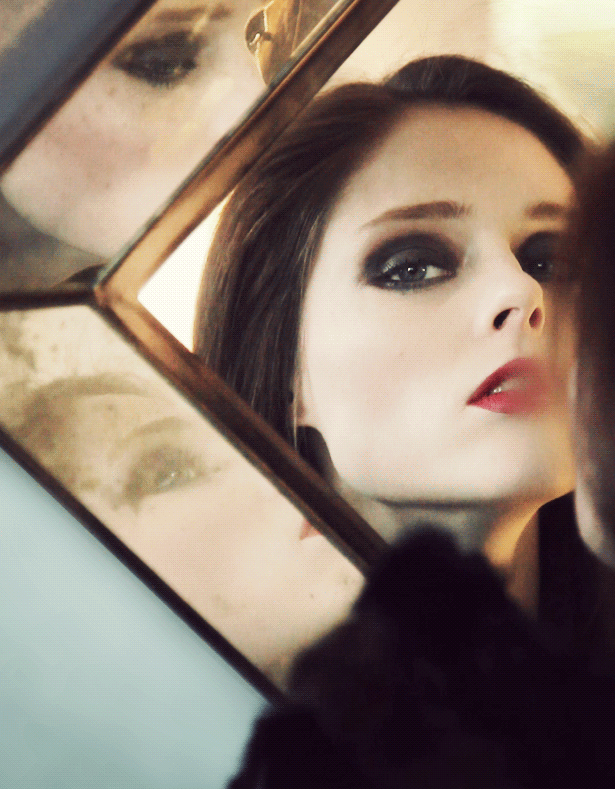 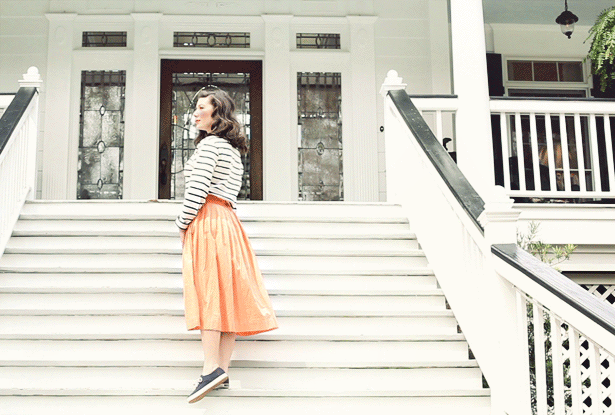 Photographer Jamie Beck and her partner Kevin Burg, who has a background in video and motion graphics, take beautiful photographs and turn them into something that rests comfortably between photography and video. 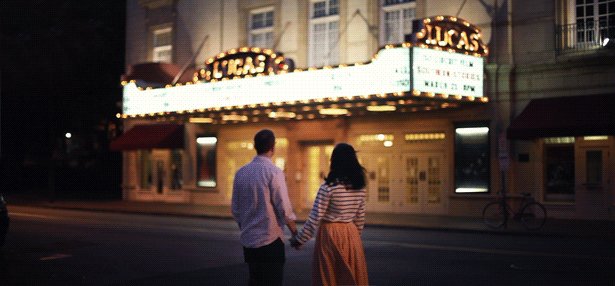 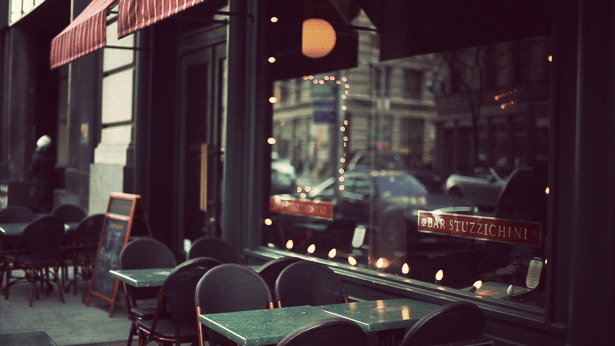 Their creations are called cinemagraphs: still photos with small elements of movement. They retain all of the exquisite composure of still photographs but add a surprising bit of motion that is absolutely mesmerizing.  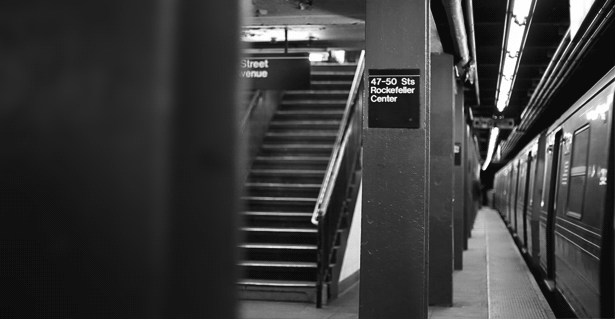 The effect can be just the tiniest bit creepy when you aren’t expecting it: the eyes of a model moving suddenly or a reflection whizzing by in a storefront window are disconcerting at first. However, these cinemagraphs are exceptionally beautiful once you move past the initial startle reflex. 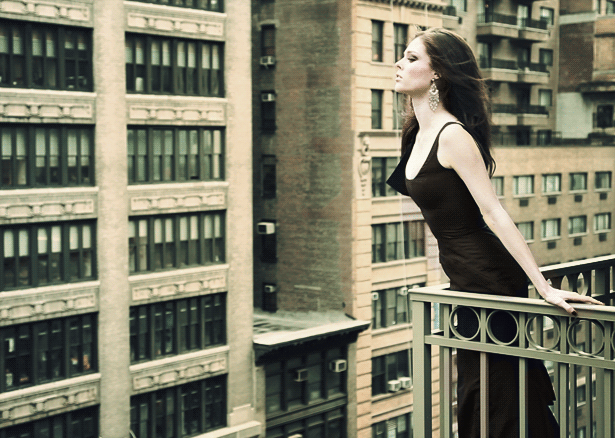  According to Beck and Burg, their work is just a little more than photographs and a bit less than video. Many of the movements are so subtle that you don’t notice them at first. The bigger movements tend to look almost like video, but it is these subtle movements that make these photos so intriguing.  Creating this movement effect is a rather painstaking process, taking from several hours to an entire day to complete for each photograph. The finished photographs are GIFs, which many of us remember as those annoying animations from the early days of the Internet. Beck and Burg’s artistry, however, have taken GIFs from a distraction to an art form.  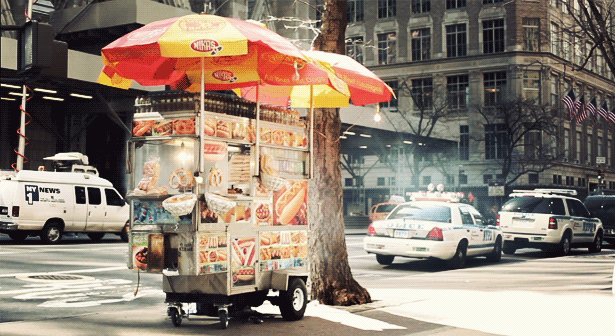 Photographer Jamie Beck says of her work: “There’s something magical about a still photograph – a captured moment in time – that can simultaneously exist outside the fraction of a second the shutter captures.” (all images used with permission of Jamie Beck. Thanks, Jamie!) Want More? Click for Great Related Content on WebUrbanist:  Removing colors can have a dramatic effect on an image. These creative monochrome photographers have created breathtaking photos in black and white. 12 Comments - Click Here to Read More »»  Guido Mocafico's subject matter is varied, but the style remains the same: visually stunning and beautifully composed photographic still lifes. 2 Comments - Click Here to Read More »»  Life in turn-of-the-century Japan is captured in vivid 3D with stereoviews by photographer T. Enami, viewed with a stereoscope or made into animated images. 1 Comment - Click Here to Read More »» مطالب مرتبط با معماری اخرین اخبار و مطالب مرتبط با معماری را از آدرس http://p30city.net/search.php?do=fin...&starteronly=1 مشاهده کنید |
 |
| کاربران در حال دیدن موضوع: 7 نفر (0 عضو و 7 مهمان) | |
|
|
اکنون ساعت 09:35 PM برپایه ساعت جهانی (GMT - گرینویچ) +3.5 می باشد.






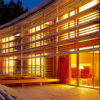
 حالت خطی
حالت خطی

